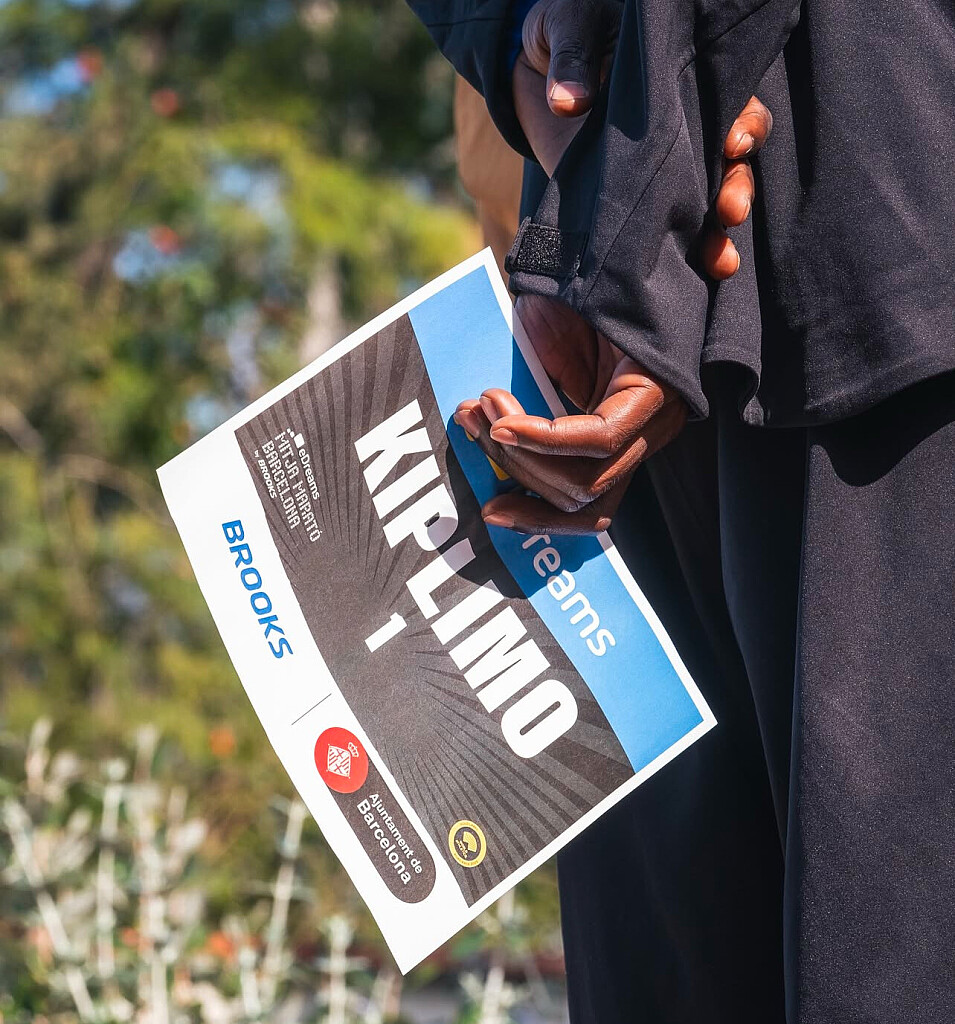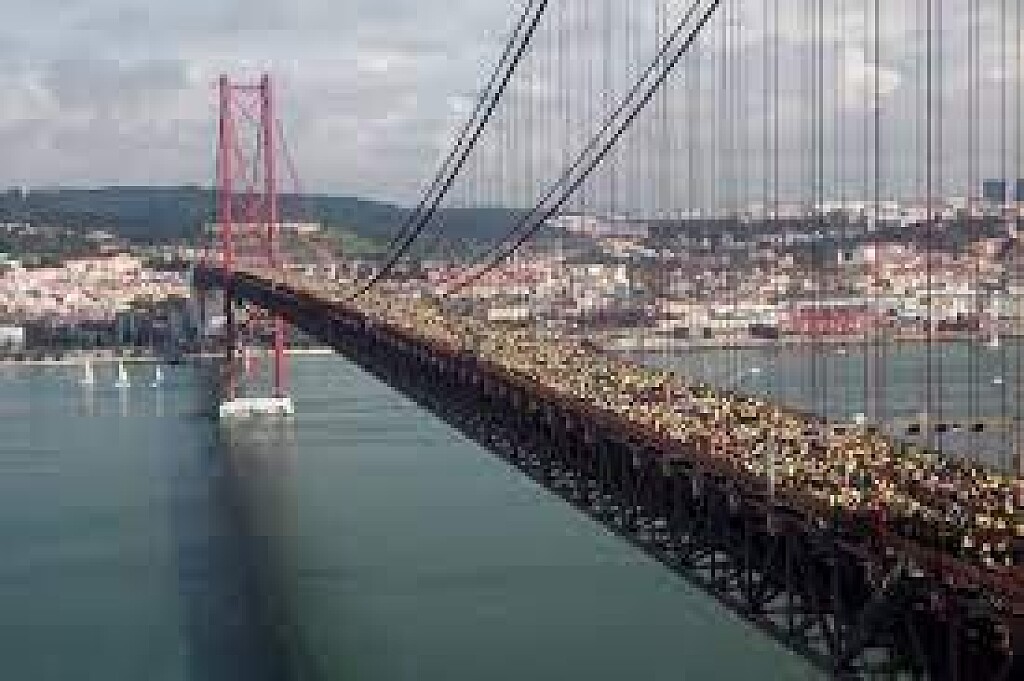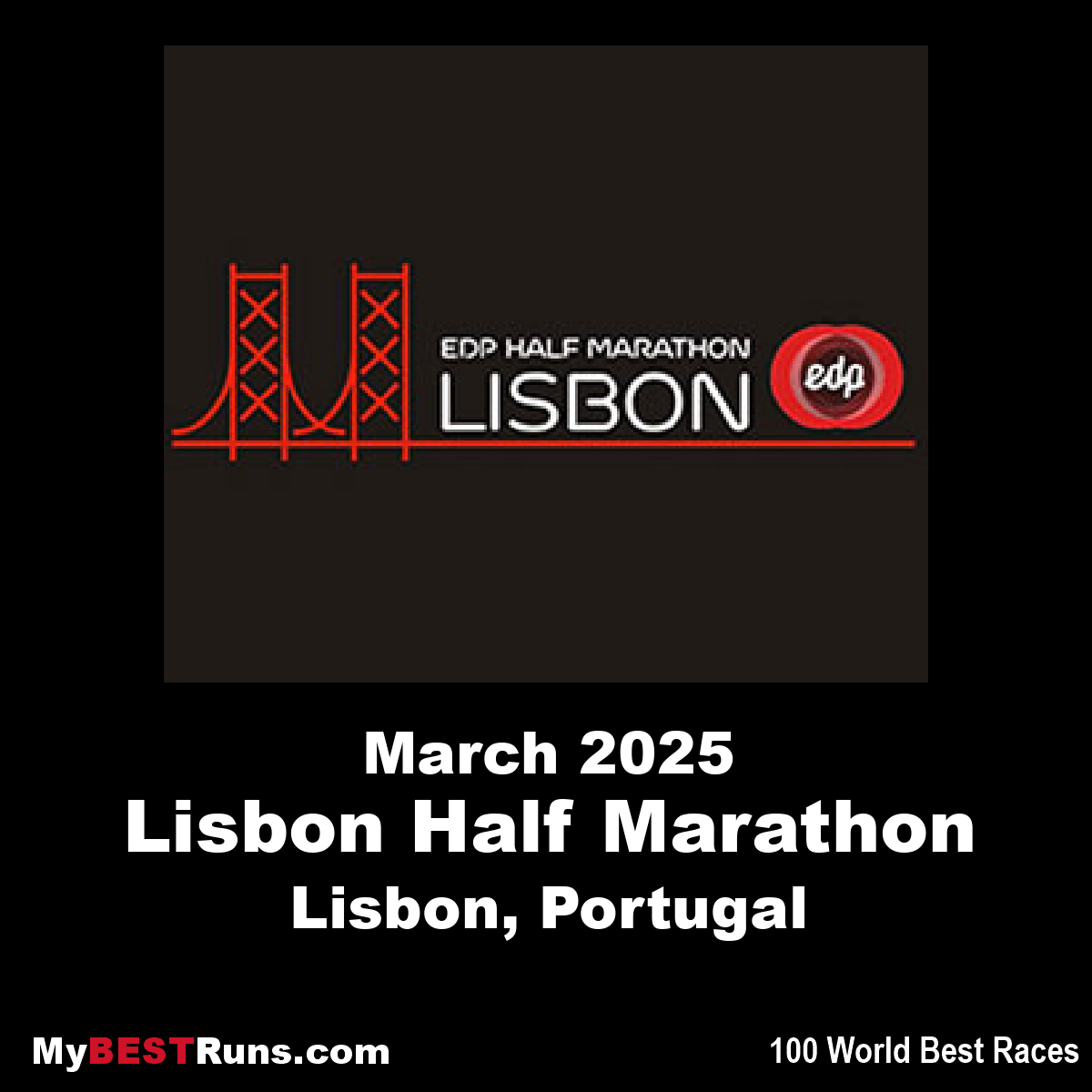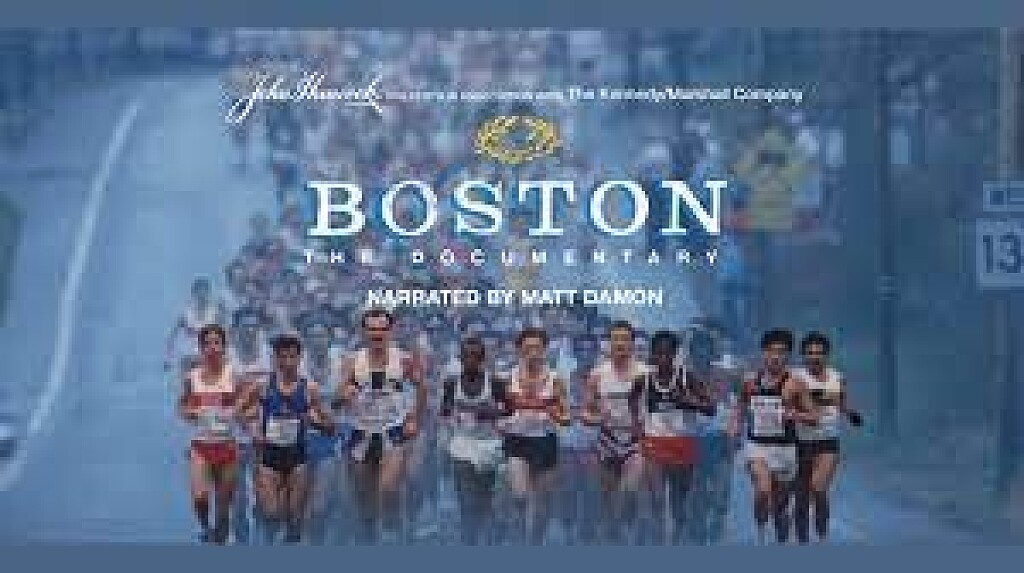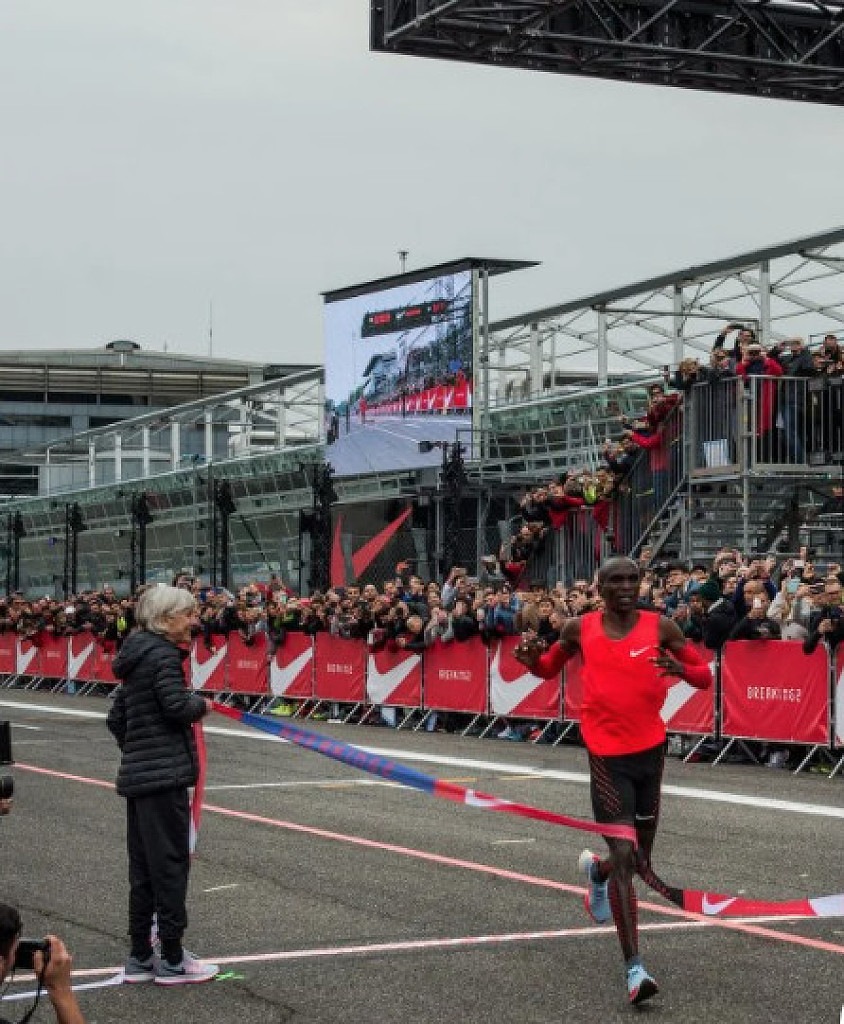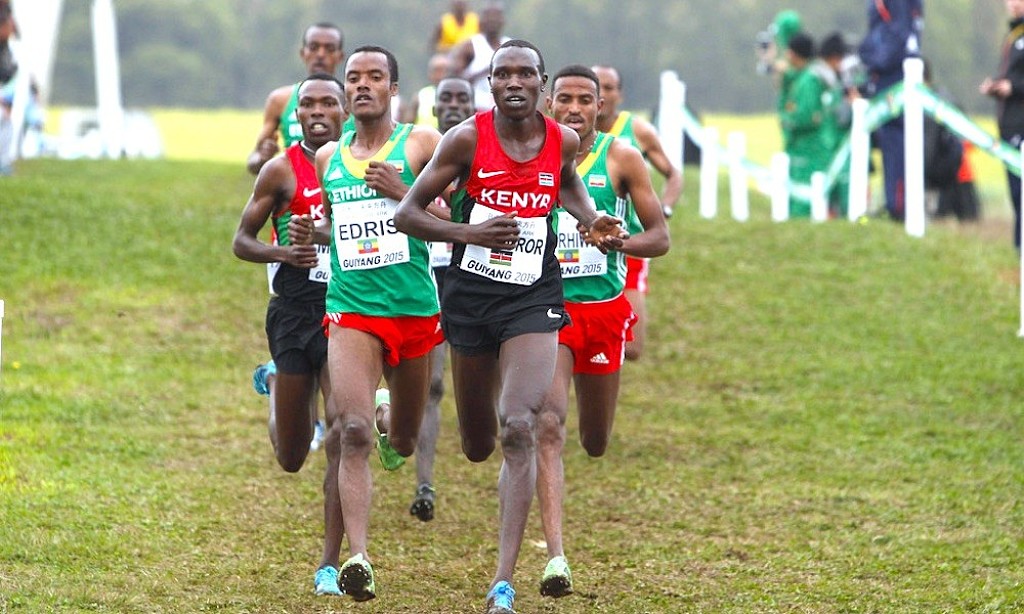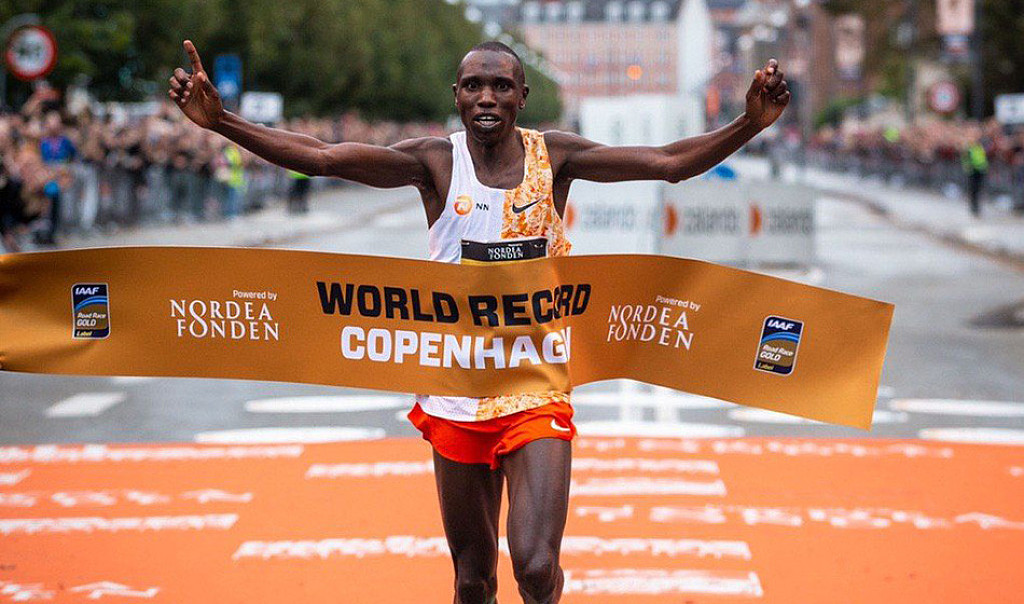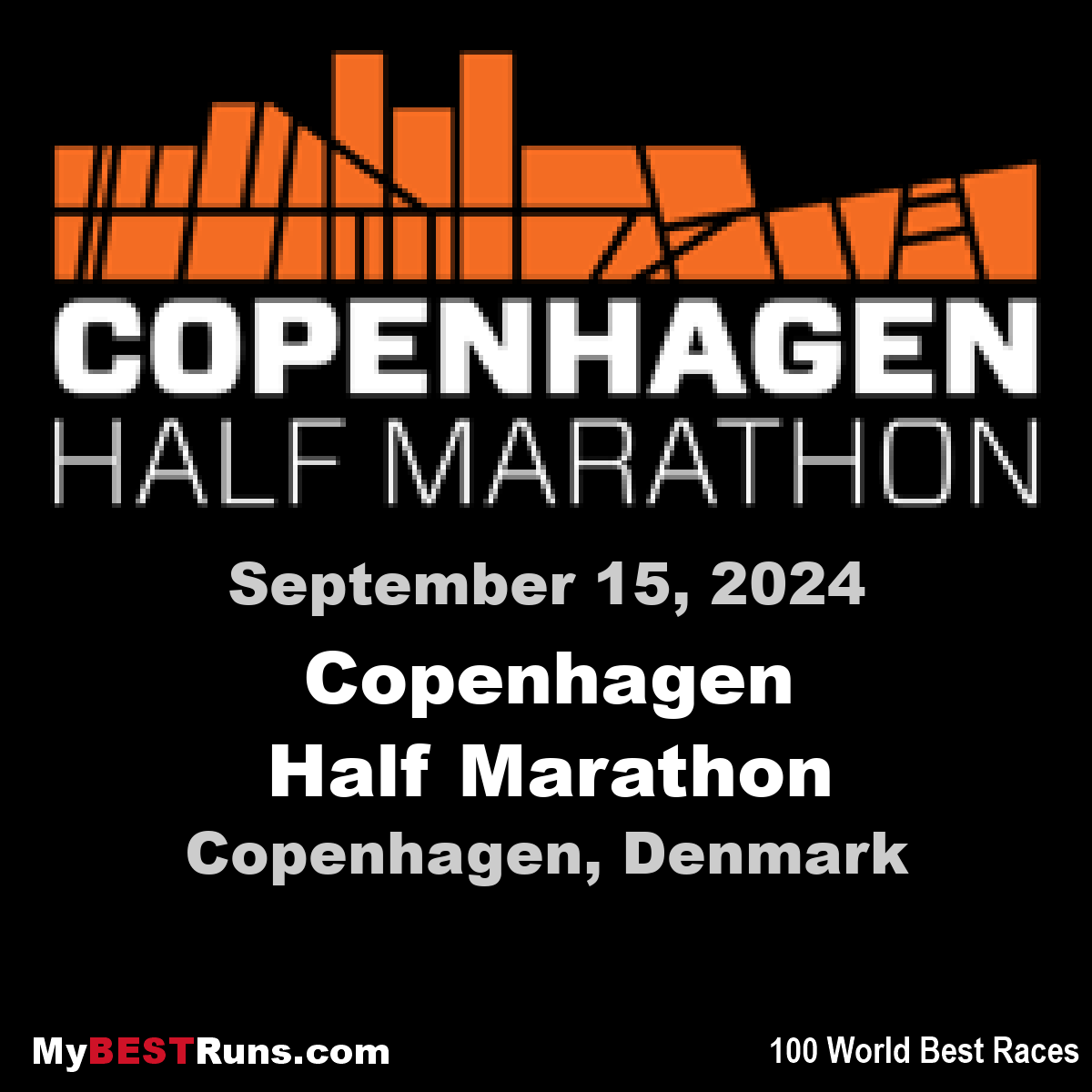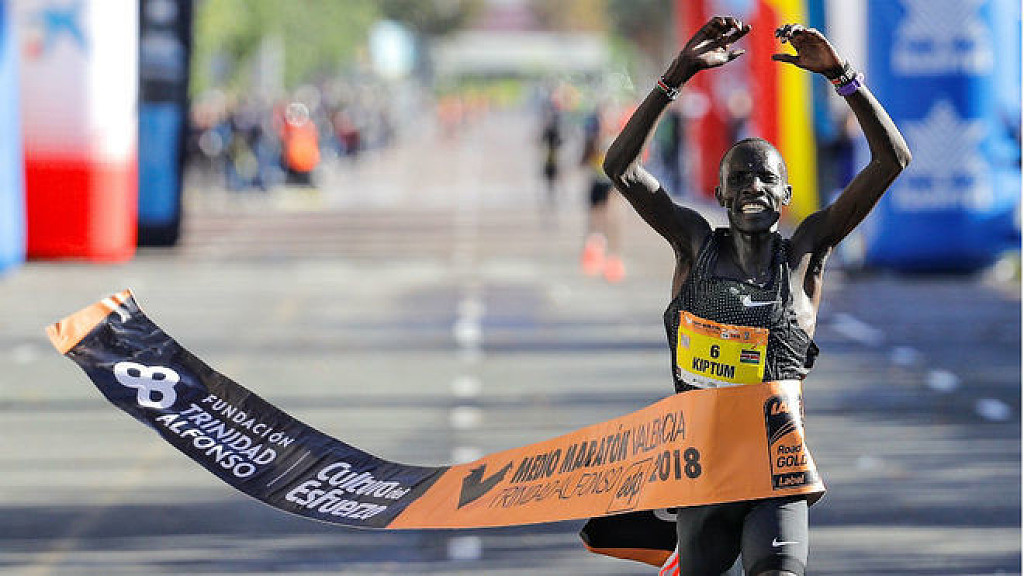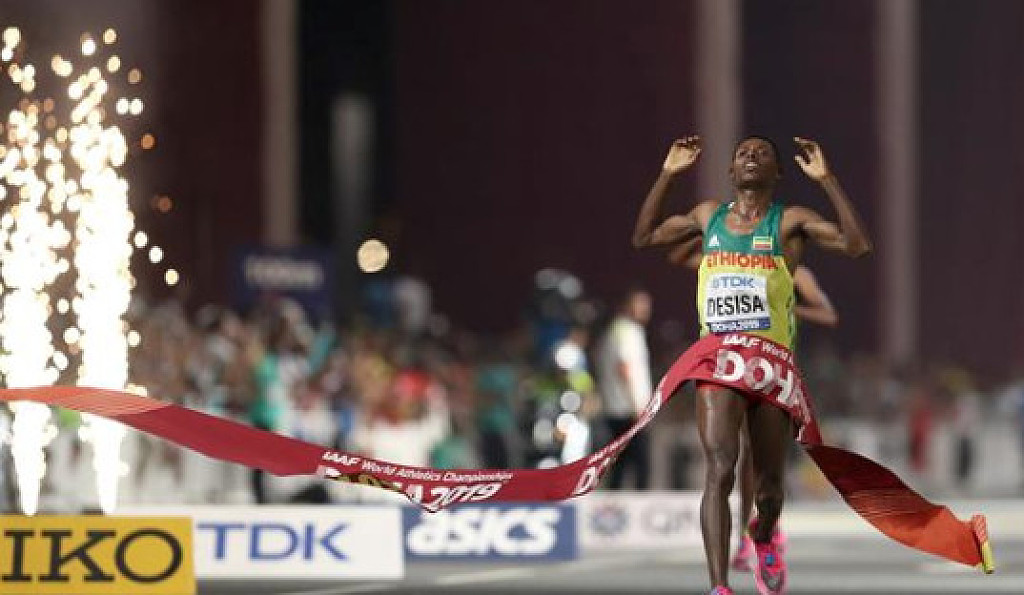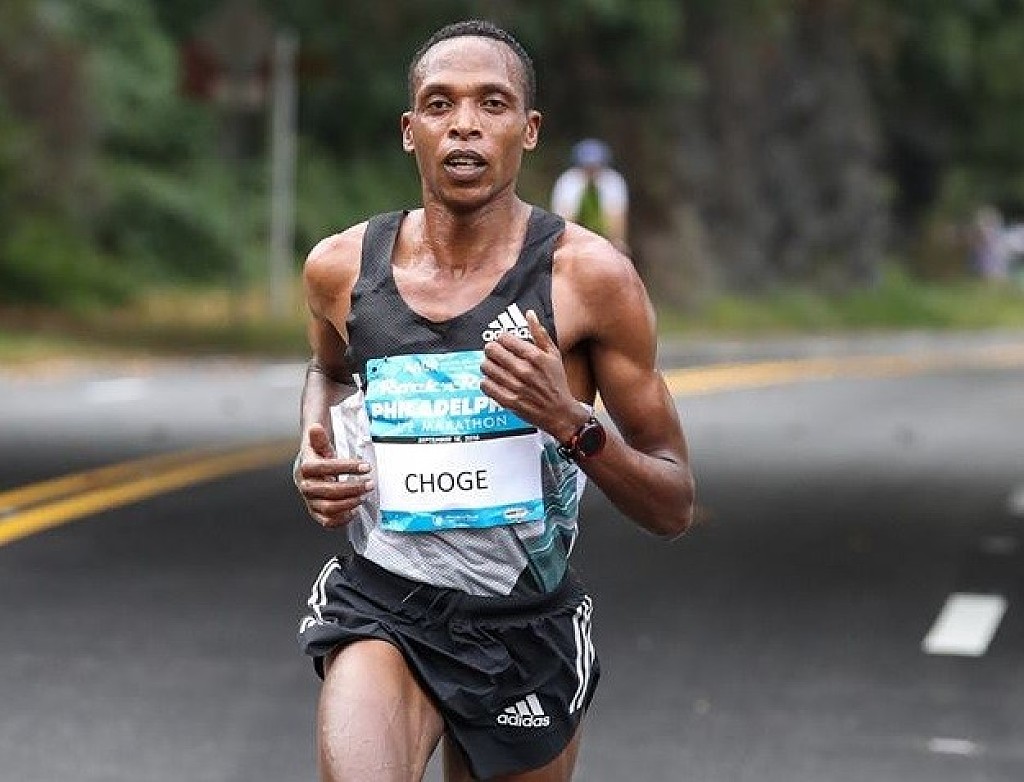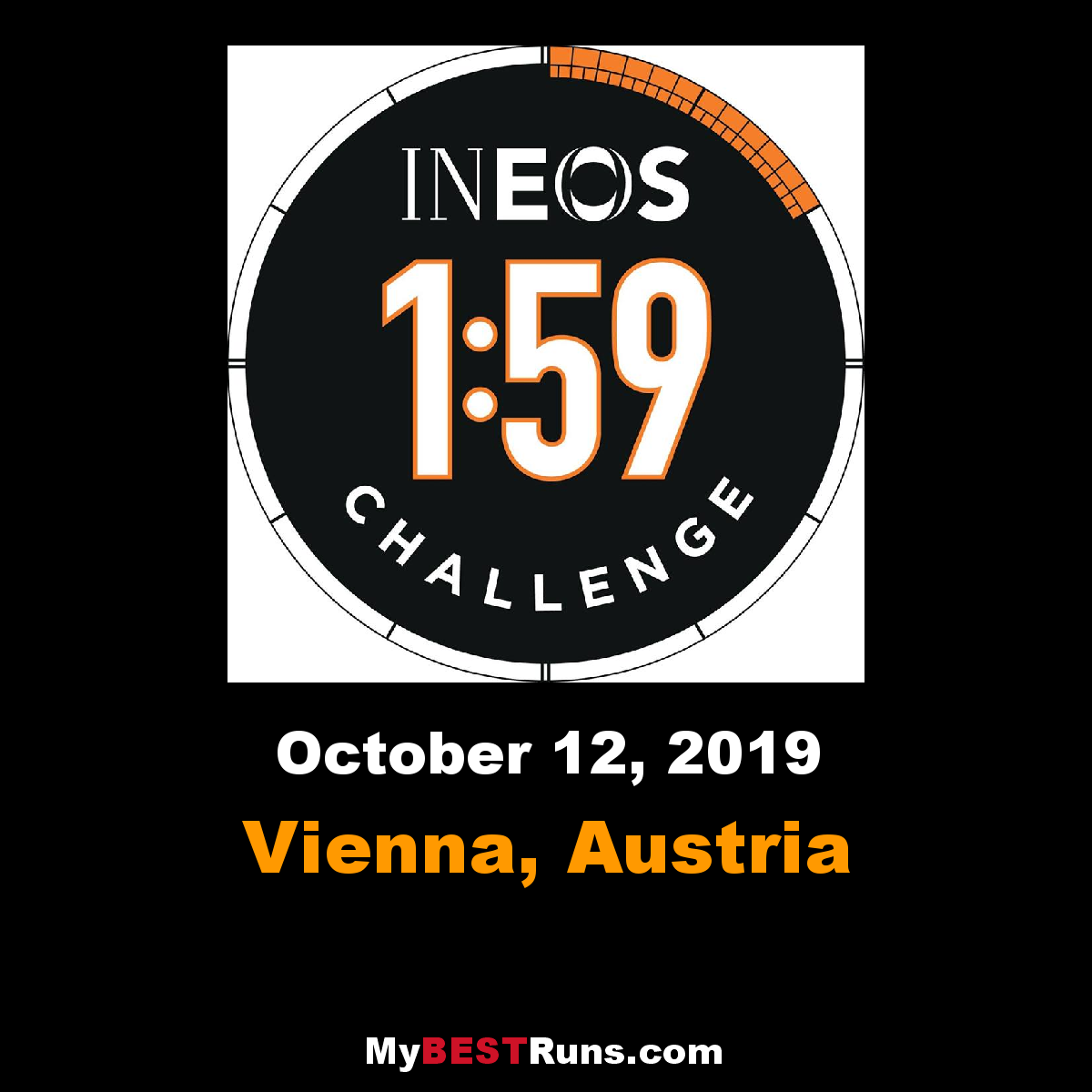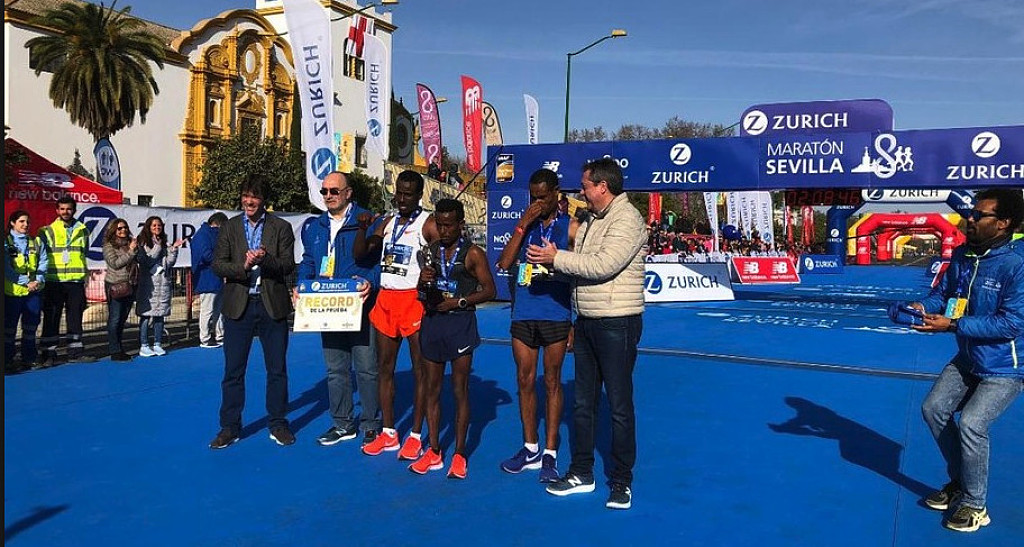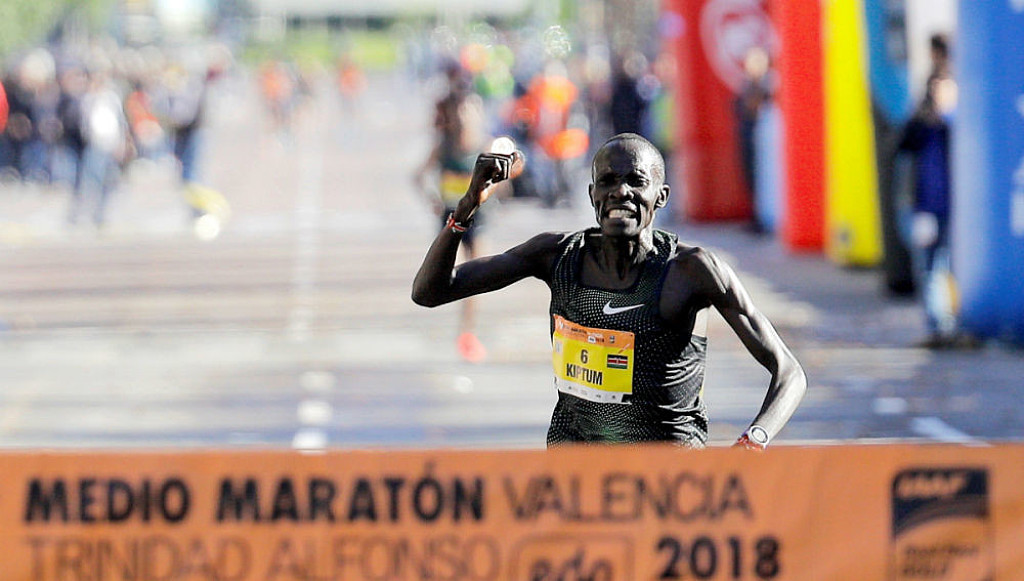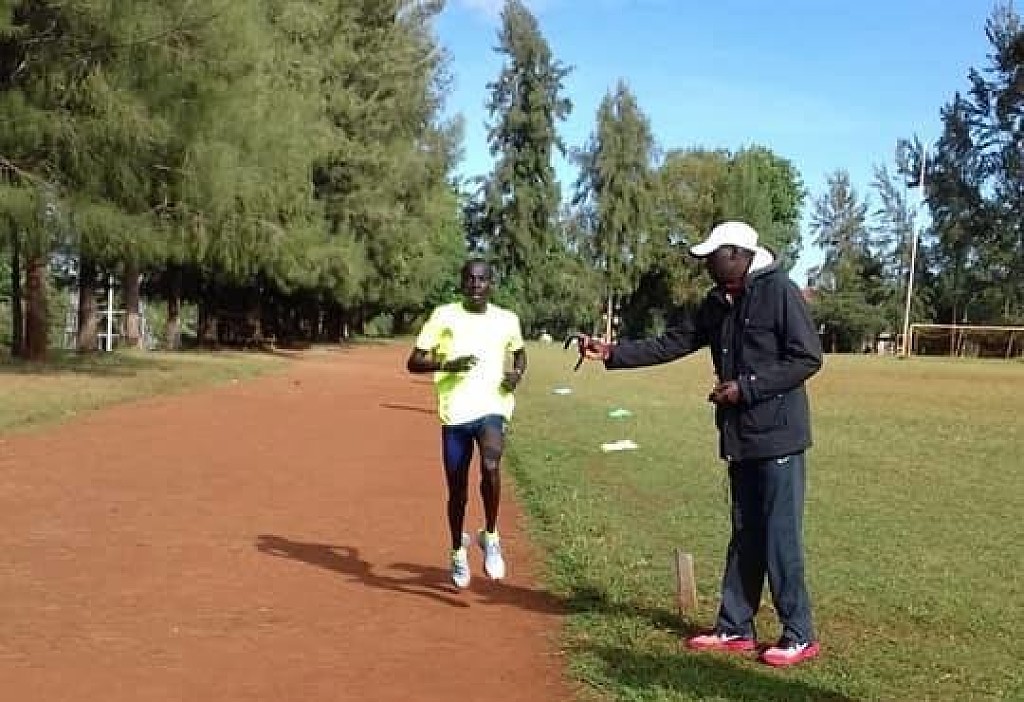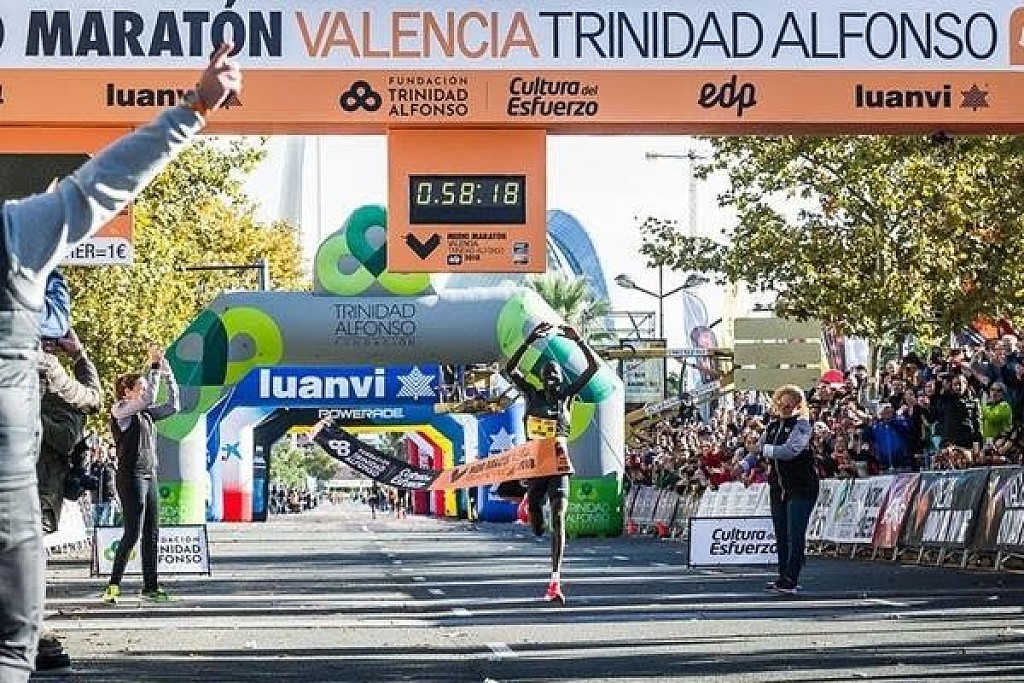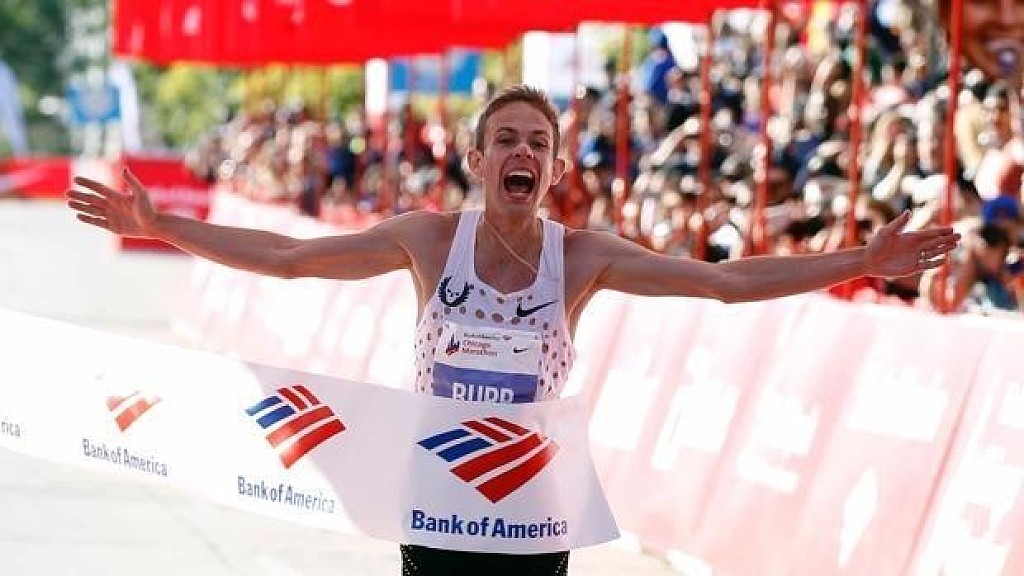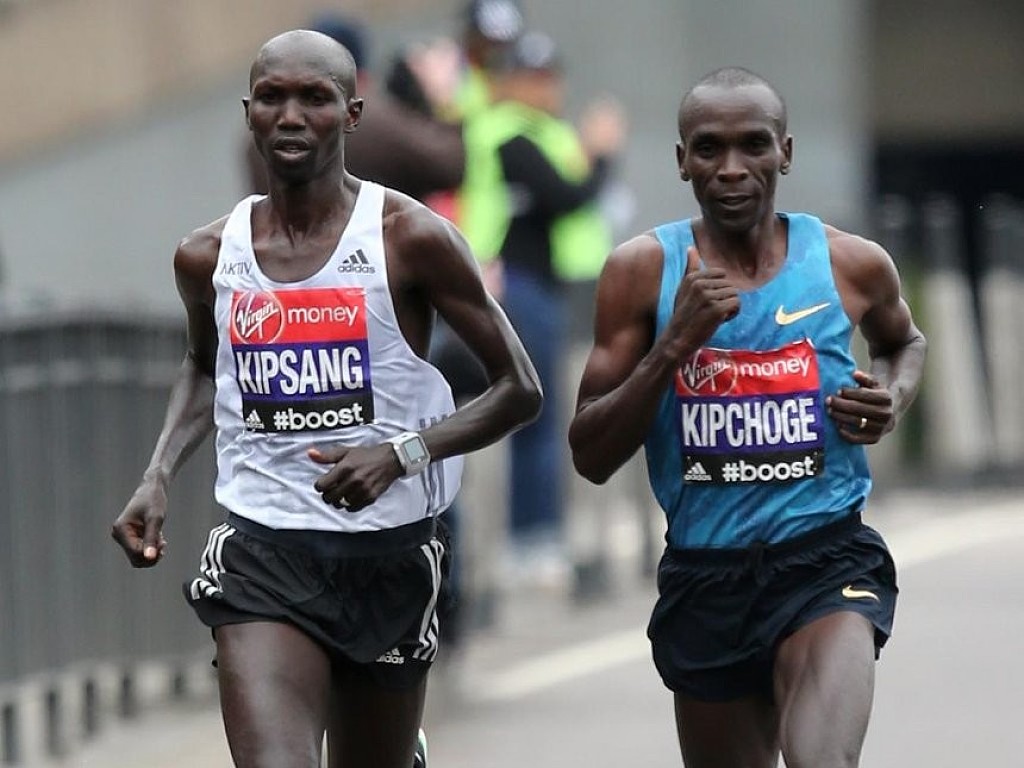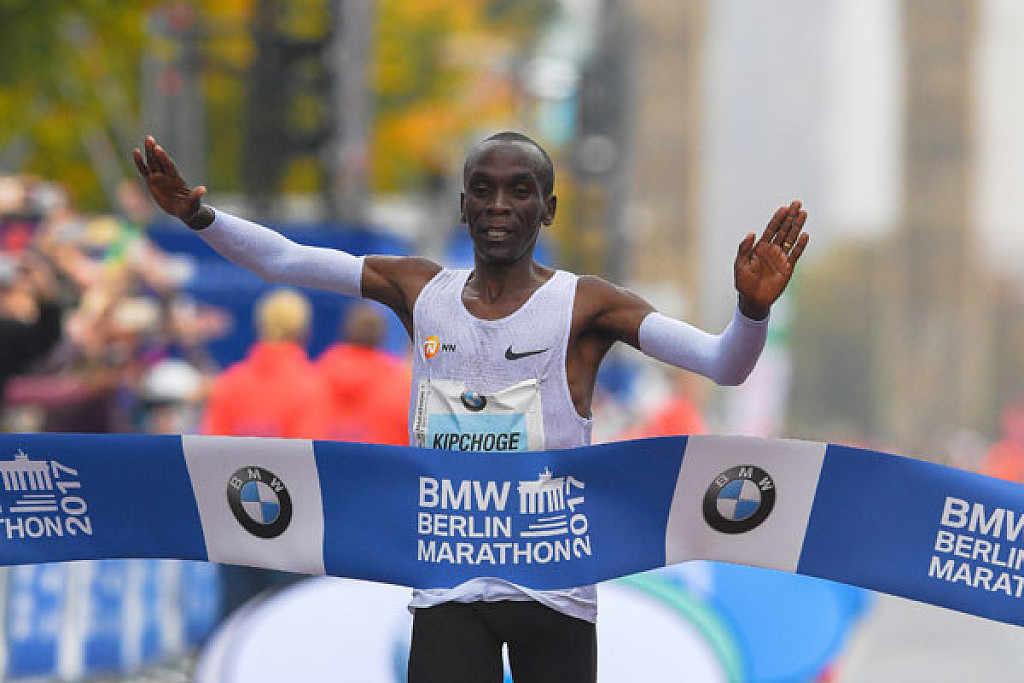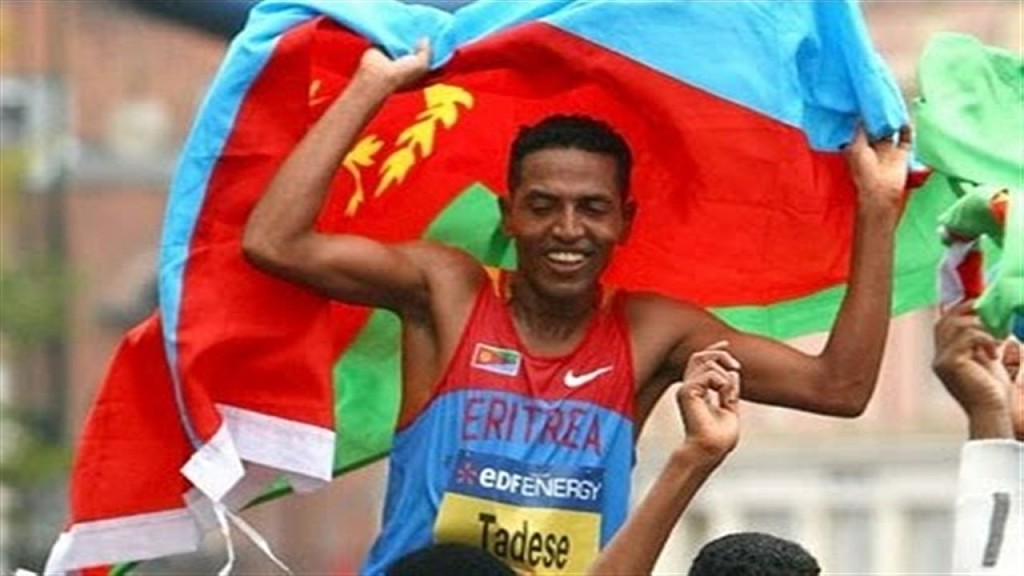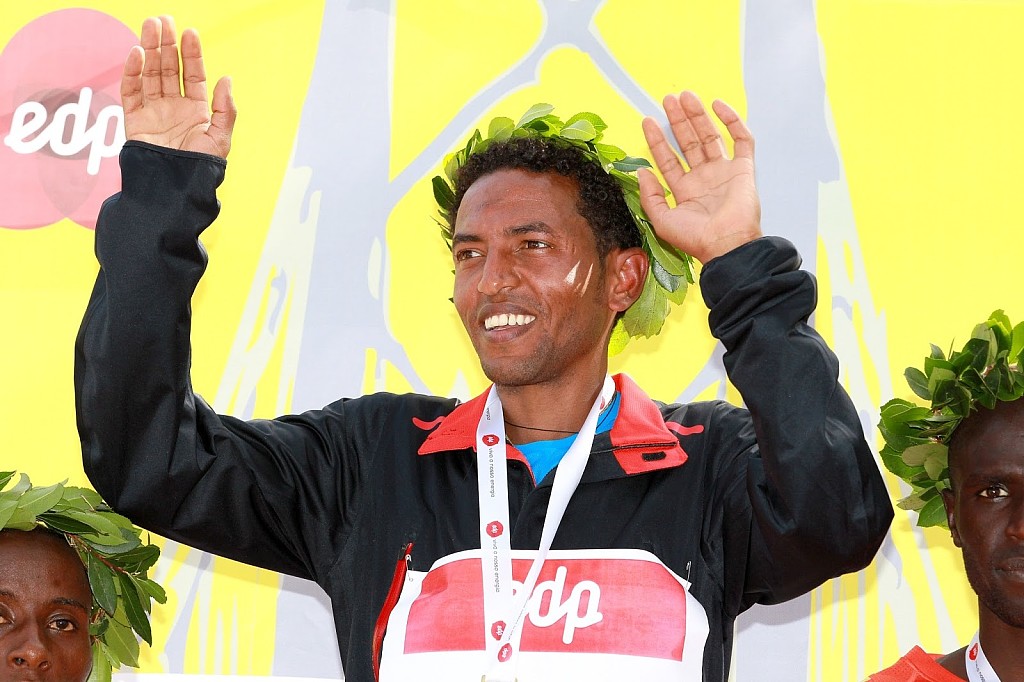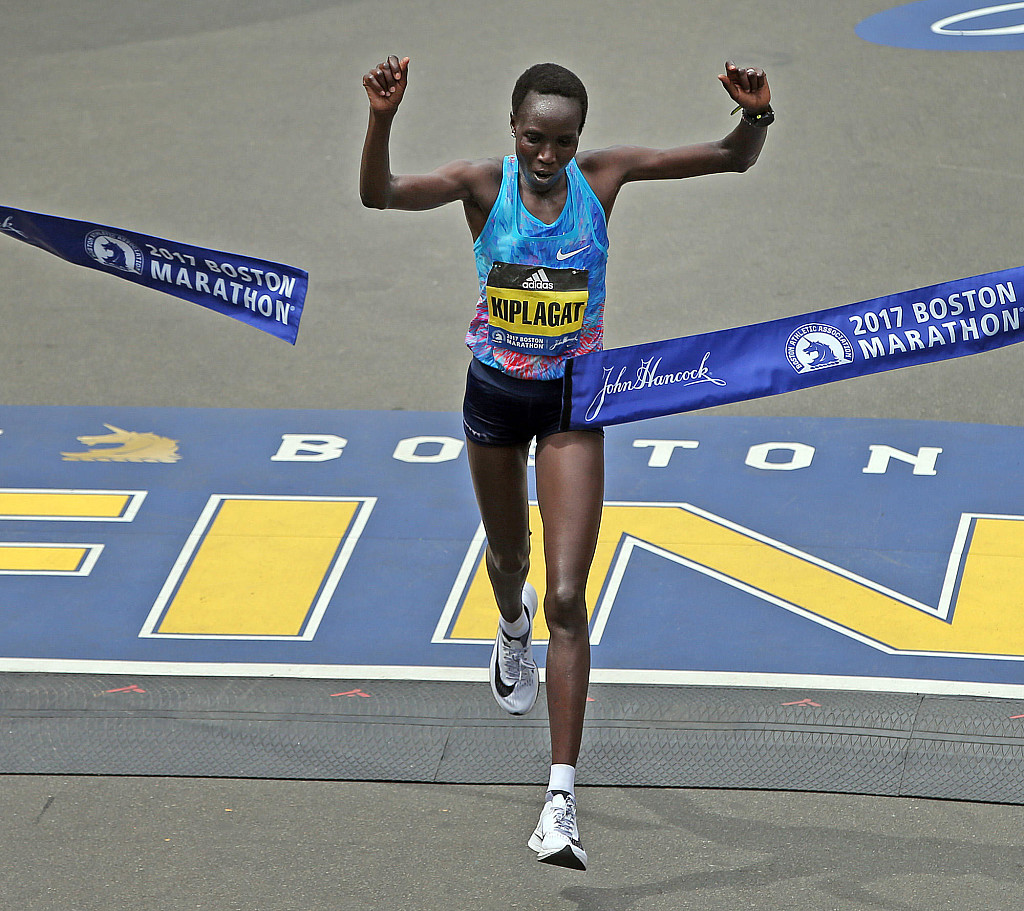Running News Daily
Running News Daily is edited by Bob Anderson. Send your news items to bob@mybestruns.com Advertising opportunities available. Train the Kenyan Way at KATA Kenya and Portugal owned and operated by Bob Anderson. Be sure to catch our movie A Long Run the movie KATA Running Camps and KATA Potato Farms - 31 now open in Kenya! https://kata.ke/
Index to Daily Posts · Sign Up For Updates · Run The World Feed
Articles tagged #Zersenay Tadese
Today's Running News
The Evolution of the Half Marathon From Breaking One Hour to a New Era
“It was not that many years ago that breaking an hour for the half marathon was an amazing feat,” says My Best Runs editor Bob Anderson. “And today, we saw that record dip under 57 minutes. That’s running 4:19 mile pace for 13.1 miles. Wow!”
The half marathon, a 21.0975-kilometer (13.1-mile) race, has long been a benchmark of endurance and speed. For decades, breaking one hour in the event was considered an extraordinary achievement. But as training, technology, and competition have advanced, so have the records. On February 16, 2025, Uganda’s Jacob Kiplimo took the event into a new era, becoming the first person to break 57 minutes with a stunning world record of 56:42 at the eDreams Mitja Marató de Barcelona.
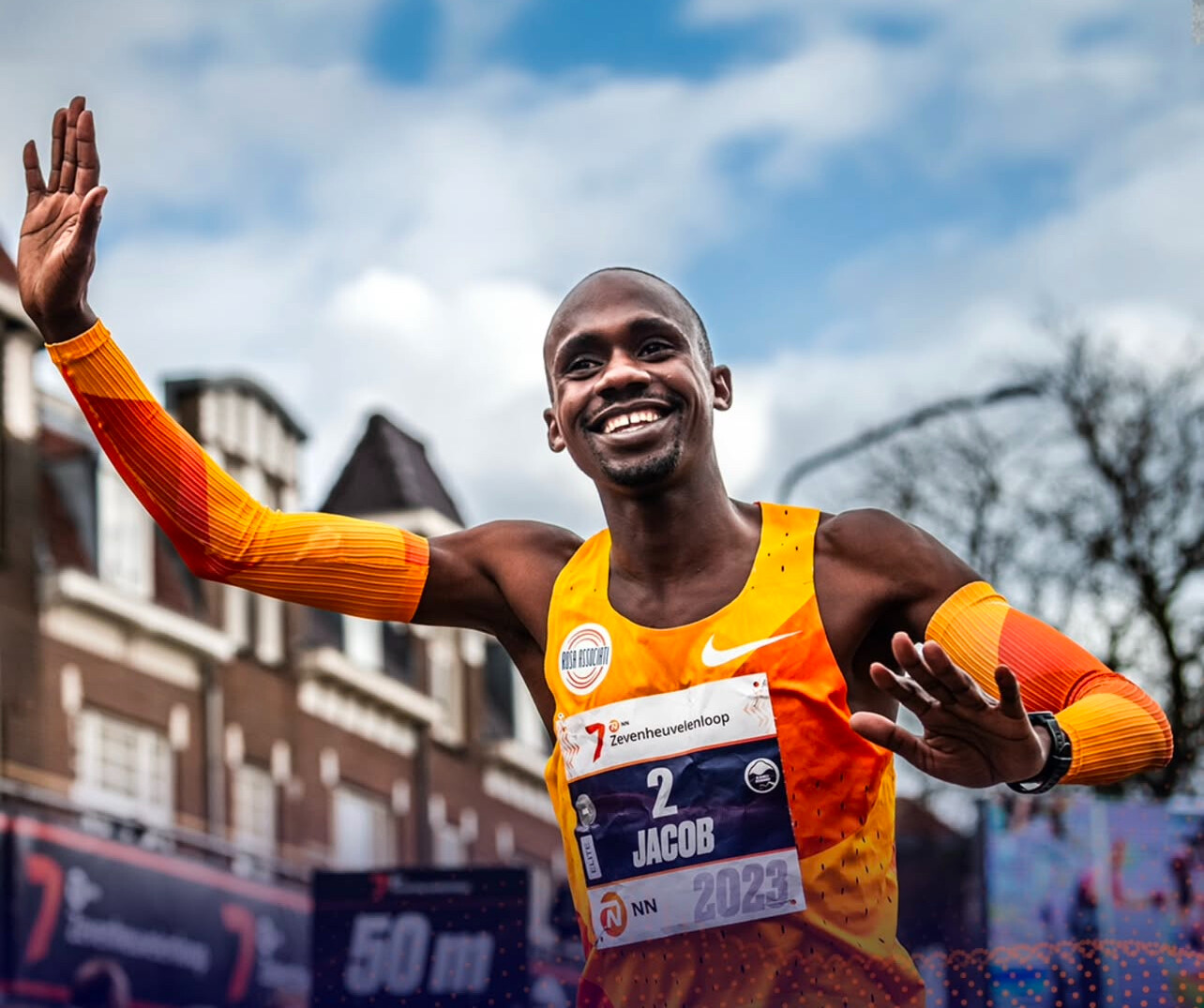
The history of the half marathon
The half marathon has been a competitive event since at least the early 20th century, though it did not gain widespread popularity until later. It emerged as a race distance that was more accessible than the full marathon but still required a balance of endurance and speed. Unlike the marathon, which has been an Olympic event since 1896, the half marathon has never been included in the Games, but it has had its own World Championships since 1992.
With the rise of professional distance running and major city half marathons, the event has grown into one of the most participated-in races worldwide. Many view it as a stepping stone to the full marathon, while others appreciate it as a challenging yet more manageable race.
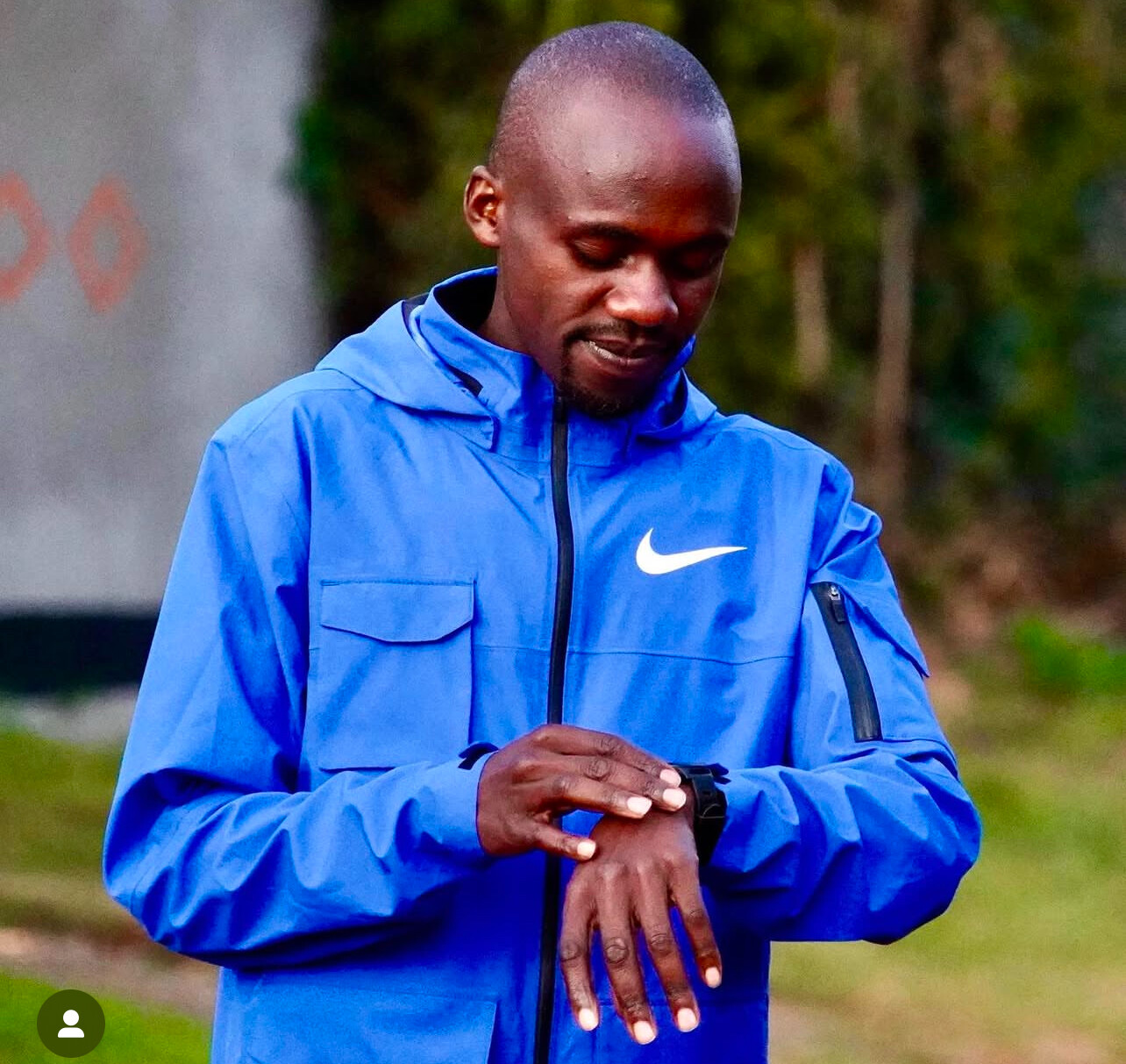
Breaking one hour The milestones
The quest to run a half marathon in under one hour became a defining goal for elite male distance runners. While marathon times had been steadily improving throughout the 20th century, the half marathon saw a more gradual progression.
1960: Australian runner Dave Power ran an unofficial best of 1:01:44.
1974: Ron Hill of Great Britain set a recognized world best of 1:02:22.
1978: Italy’s Marcello Fiasconaro improved the mark to 1:01:49.
1985: Steve Jones of Great Britain ran 1:01:14, bringing the record closer to the one-hour barrier.
1993: Moses Tanui of Kenya became the first man to break one hour, running 59:47.
Once Tanui shattered the one-hour barrier, improvements became more frequent, with Kenyan and Ethiopian athletes dominating the event.
1997: Paul Tergat (Kenya) ran 59:17.
2005: Samuel Wanjiru (Kenya) ran 59:16, then 58:33 in 2007.
2010: Zersenay Tadese (Eritrea) set a long-standing record of 58:23.
2020: Kibiwott Kandie (Kenya) became the first to break 58 minutes, running 57:32.
2021: Jacob Kiplimo (Uganda) set a new record at 57:31.
2024: Yomif Kejelcha (Ethiopia) improved it to 57:30.
2025: Jacob Kiplimo rewrote history with 56:42.
The women's half marathon world record
On the women’s side, the world record has seen significant improvements as well. Ethiopia’s Letesenbet Gidey currently holds the record, running 1:02:52 on October 24, 2021, at the Valencia Half Marathon. This was a massive leap forward, making her the first woman to break 64 minutes.
Previous records include:
1982: Joan Benoit Samuelson (USA) ran 1:08:34.
2001: Elana Meyer (South Africa) became the first woman to break 67 minutes, running 1:06:44.
2007: Lornah Kiplagat (Netherlands) set a world record of 1:06:25.
2017: Joyciline Jepkosgei (Kenya) became the first woman under 65 minutes, running 1:04:52.
2021: Letesenbet Gidey shattered expectations with 1:02:52.
A new era for the half marathon
With Kiplimo’s record-breaking 56:41, the half marathon has entered uncharted territory. His ability to maintain a 4:19 per mile pace for 13.1 miles is a testament to the evolution of the sport. Advances in training methods, course selection, pacing strategies, and shoe technology have all contributed to these record-breaking performances.
The question now is what comes next. Will someone push the limits even further and run under 56 minutes? Will Kiplimo’s record stand for years, or will it spark another round of breakthroughs?
For now, all eyes turn to Kiplimo’s next challenge: his marathon debut at the London Marathon on April 27, 2025. If his half marathon success is any indication, the world may soon see him make history over 26.2 miles as well.
One thing is certain—the evolution of the half marathon is far from over, and the best may still be yet to come.
by Boris Baron
Login to leave a comment
Lisbon offers 150K EUR bounty for new records
Bonus for new world records in the half marathon.
Scheduled for March 17, the EDP Lisbon Half Marathon remains one of the world’s leading and fastest long-distance races and this year it will once again reward fast times with an attractive cash prize.
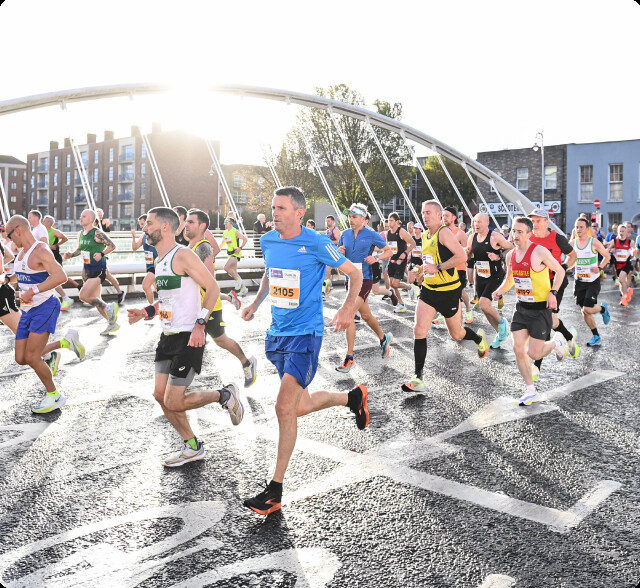
Therefore, as an incentive for the elite, the race organisers Maratona Clube de Portugal today announced a bonus of 150,000 Euro (162,500 USD) for new world records in this year’s race.
Lisbon already holds the best men’s mark – 57:31 (Jacob Kiplimo, in 2021) – and now, as well as wanting to improve on that stratospheric record, it also wants to add the women’s record, which is currently held by Ethiopian Letesenbet Gidey, with 1:02:52 in Valencia, the same year.
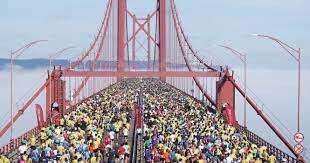
In addition to Kiplimo’s time, Lisbon has been the scene of other world and European records in the past, such as Zersenay Tadese’s world record in 2010 or Mo Farah’s continental record in 2015.
Carlos Moia, president of the Maratona Clube de Portugal (MCP) says: “This bonus of 150,000 EUR for a possible world record, both female and male, reflects our unwavering commitment to promoting talent and inspiring athletes to reach new heights of success and overcoming. We will continue our tradition of recognizing and rewarding excellence. Lisbon, with all its light and good energy, provides the perfect setting for moments of great achievement.”
Sunday’s races will be broadcast directly on RTP1 and RTP Internacional to more than 200 million potential viewers around the world.
by AIMS
Login to leave a comment
EDP HALF MARATHON OF LISBON
EDP Lisbon Half Marathonis an annual internationalhalf marathoncompetition which is contested every March inLisbon,Portugal. It carries World Athletics Gold Label Road Racestatus. The men's course record of 57:31 was set byJacob Kiplimoin 2021, which was the world record at the time. Kenyanrunners have been very successful in the competition, accounting for over half of the total winners, withTegla Loroupetaking the...
more...Documentaries every runner should watch
If you’re tired of wasting time scrolling through Netflix searching for the right movie or show to watch, we’ve got you covered. There are plenty of movies out there on running, but we’ve selected five of the best documentaries for you to watch. Before you get started on these films, though, be warned: sudden bursts of inspiration are highly likely while watching these flicks, so be ready to feel the need to go for a run after viewing.
The Barkley Marathons: The Race That Eats Its Young
This film was released in 2014, and it tells the story of the Barkley Marathons, race founder Laz Lake and the runners who dream of finishing the event. Producers followed the 2012 event, before which only 10 people had completed the Barkley Marathons, but that number is up to 15 today. The documentary brought this race into the mainstream, and although viewership was likely primarily runners, it captivated non-running audiences as well.
Boston: The Documentary
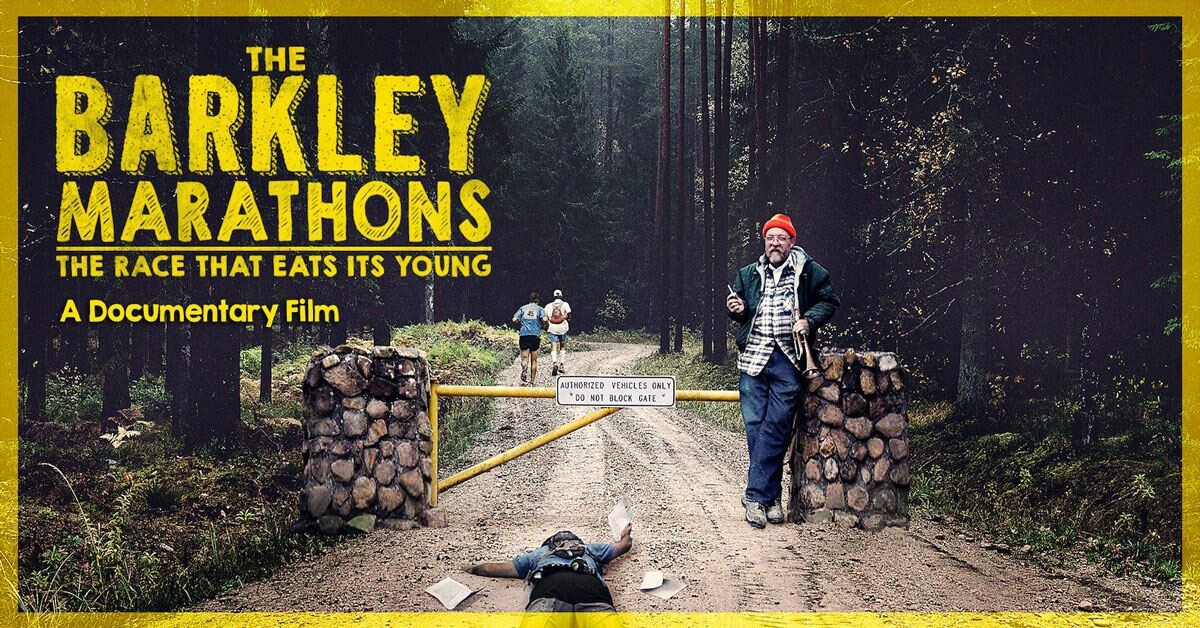
This 2017 documentary covers the history of the Boston Marathon, from its humble beginnings in 1897 right up to modern times. The film, which is narrated by Boston native Matt Damon, follows legends of the race (like the event’s first official female participant, Kathrine Switzer), 2014 winner Meb Keflezighi and four-time winner Bill Rodgers, as well as other past champions. In addition to the race’s history, the documentary looks to the future as organizers worked past the tragic events of 2013 and towards the Boston Marathons yet to come.
The Runner
In Oct. 2022, The New Yorker released a short, 17-minute documentary called The Runner that follows an Indigenous Canadian ultrarunner named Darius Sam. The film documents a 100-mile run in 2020 that Sam set out to complete to raise money and awareness for mental health. Since then, Sam has continued with ultrarunning, and in 2021 he became the youngest male to run the Moab 240, a behemoth of a race through Utah. Sam’s efforts have also led to a whopping $150,000 raised for mental health charities.
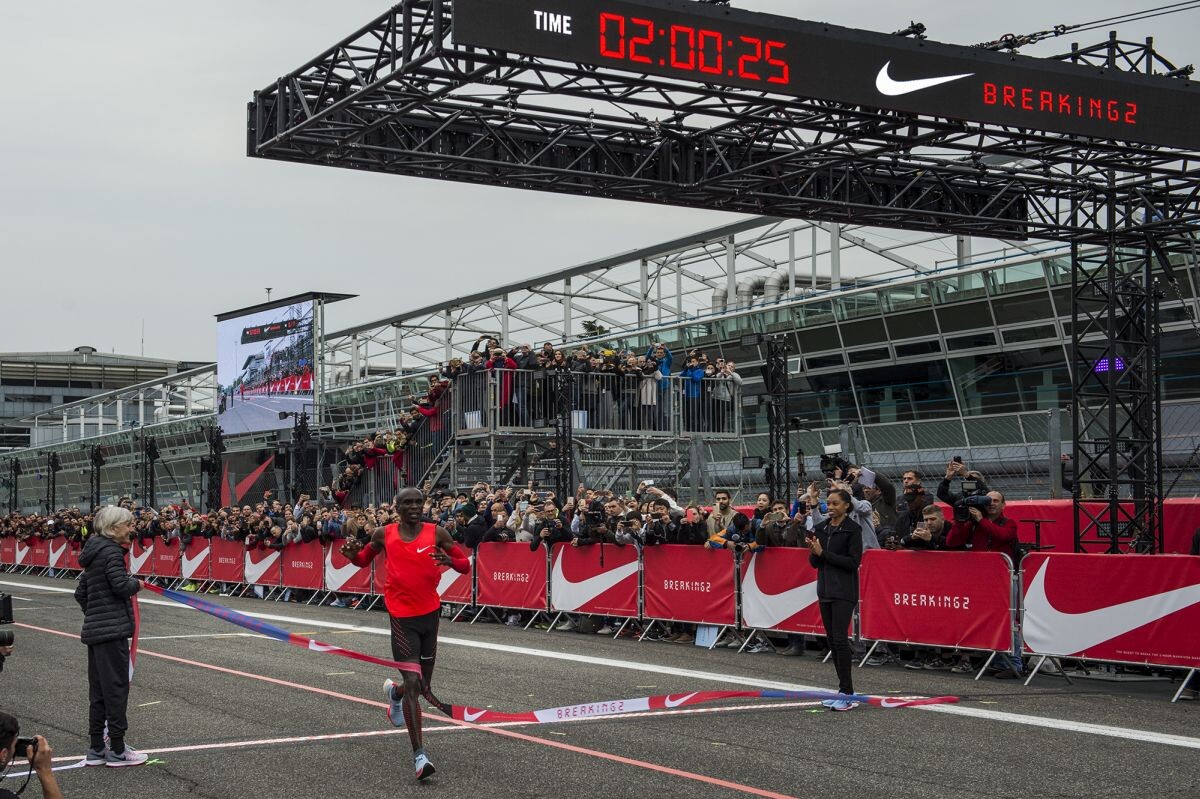
Breaking2
This documentary was produced by National Geographic and Nike, and it followed the build-up to the first-ever sub-two-hour marathon attempt, Nike’s Breaking2 project, in Italy in 2017. The film dives into the lives of the three Breaking2 athletes (Eliud Kipchoge, Zersenay Tadese and Lelisa Desisa), the months of planning that went into the attempt and the run itself. Although it ended up being unsuccessful (Kipchoge ran 2:00:25), it was still thrilling to watch, and the documentary is just as exciting.
Icarus
Although this Oscar-winning documentary is not a running-specific film, it should still be at the top of every runner’s must-watch list. The Netflix film intended to focus on doping and how difficult (or easy) it is to get away with cheating in elite sports, but it quickly turned into a story about doping in Russia, which ultimately led to the downfall of a years-long program that involved countless Russian athletes and sports officials.
by Ben Snider-McGrath
Login to leave a comment
We Now Have the Lab Data on Nike's Breaking2 Runners
To pick their two-hour marathon team, researchers tested some of the greatest runners on the planet. Now they're revealing what they found.
Here’s a quick and convenient way of finding out whether you’re ready to run a two-hour marathon. Head to the track and run six laps (roughly 1.5 miles) at two-hour pace (4:34.6 per mile), then run one more lap as fast as you can. Have a nearby exercise physiologist fit you with a portable oxygen-measuring mask, to measure your energy consumption at that pace. Then crunch the data to see whether your metabolism is settling into a sustainable pattern, or whether it’s spiraling out of control toward a fiery explosion.
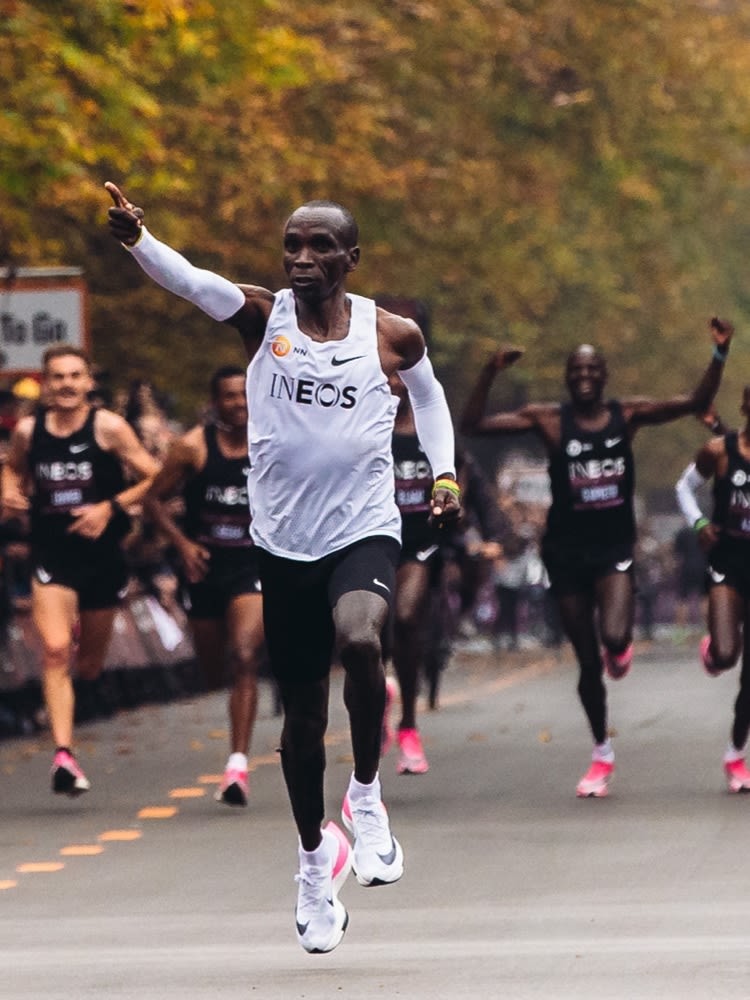
That’s one of several tests that at least 16 elite runners underwent during the selection process for Nike’s 2017 Breaking2 race, which Eliud Kipchoge ended up winning in 2:00:25. Now the scientists responsible, including teams from Andrew Jones’s group at the University of Exeter in Britain and the Nike Sport Research Lab in Beaverton, have published some of the data in the Journal of Applied Physiology. It’s grouped and anonymized, so we don’t get to obsess about the individual details of Eliud Kipchoge’s physiology, but it’s a pretty rare window into the characteristics of best-of-the-best runners. Here are some of the highlights.
The runners were “predominantly of East African ethnicity,” with average bests of 1:00:04 for the half marathon and 2:08:40 for the marathon at the time of testing (they’ve since run, on average, 59:53 and 2:06:53). All were drawn from the global pool of Nike-sponsored runners, with a particular focus on those with half marathon times that suggested the ability to handle two-hour pace. The only runners we know for sure were among the subjects are Kipchoge and his fellow Breaking2 finalists, Zersenay Tadese and Lelisa Desisa. The inclusion of runners like Tadese, who at the time held the half marathon world record of 58:23 but had only run 2:10:41 for the marathon, helps explain the relatively modest average marathon time.
The testing, which was completed at either the Nike campus or the University of Exeter, included a bunch of body measurements like height, weight, body fat, lung function, and the length and girth of various parts of the leg and foot. This stuff is interesting, since some researchers believe that factors like the length of the Achilles tendon can influence running economy, but there were no unusual results. Biomechanical testing of ten of the runners who were examined in Exeter found that six were forefoot strikers and four were heel strikers, and the most efficient runners had the shortest ground contact time with each step. Again, this is more or less what you’d expect based on previous studies of elite runners.
They also did a VO2 max test on the treadmill, with the speed increased in stages until the runners gave up. Between each treadmill stage, the runners hopped off the treadmill briefly to have their fingers pricked for a lactate measurement to determine their lactate threshold. Here there were some more surprising results. The average VO2 max was just 71.0 ml/kg/min, which is unexpectedly low given that the range expected for elite endurance athletes is typically about 70 to 85. The lowest value among the Nike runners was 62, which is astonishingly low, and the highest was 84, which is high but far from unprecedented. You can think of VO2 max as the size of the aerobic engine; whatever gifts made these runners special, it apparently wasn’t having a huge engine.
You’d expect, then, that they must be extraordinarily efficient. Their running economy, which is a measure of how much energy you burn at a given pace, was indeed pretty good, averaging 189 ml/kg/km on the treadmill. That’s consistent with previous studies that found typical values of around 190 ml/kg/km in elite runners (and substantially better than the values of 210 or higher seen in recreational runners at slower paces), although there was a lot of individual variation between the most and least economical. As in previous studies, there was an inverse relationship between VO2 max and running economy: those with the highest VO2 max tended to have the worst economy, and vice versa. Whether that’s inevitable for some physiological reason, or simply a reflection of the fact that even elite runners are unlikely to hit the genetic lottery twice, remains a topic of spirited debate.
To measure running economy, you have to be running aerobically, since oxygen consumption is used as a proxy for energy consumption. If you’re having to burn a lot of anaerobic energy to maintain the pace, the energy estimate will be inaccurate. Interestingly, only seven of the 16 runners were able to fulfill this requirement while running at 2:00 marathon pace. The other nine were above their “critical speed” at that pace, which tells you pretty much right away that they had no hope whatsoever of running a two-hour marathon. (To be fair, the testing had to be slotted in between seasons for some of the runners, so they may not have been in peak condition.)
In the classic mathematical model of marathon performance, there are three variables: VO2 max, running economy, and a third variable that represents what fraction of VO2 max you’re able to sustain over the course of a marathon. That third variable is often approximated by the lactate threshold, which is the speed at which your lactate levels begin to gradually creep up as you start relying more on anaerobic energy.
But well-trained marathon runners are actually able to run the distance at a slightly higher speed than their lactate threshold. In this study, the runners hit their lactate threshold at 83 percent of VO2 max on average. Their critical speed, which is roughly when lactate levels start shooting up more steeply instead of just creeping up, occurred at 92 percent of VO2 max. Marathon pace tends to be somewhere between those two markers. In fact, a previous study by Jones and Anni Vanhatalo found that elite marathoners tend to run their marathons at 96 percent of critical speed, which in this case works out to 88 percent of VO2 max.
If you run the numbers, using lactate threshold as marathon pace predicts that the runners in the study should average 2:15:24 for the marathon. Using critical speed predicts 2:02:55. Using the Goldilocks value of 88 percent of VO2 max, in contrast, gives a prediction of 2:08:31—almost exactly corresponding to their average best time at the time of testing, which was 2:08:40. The takeaway: your critical speed (which you can calculate as described here) offers a pretty good estimate of marathon pace, assuming your training is adequately geared for the distance.
After all this testing, the team selected Kipchoge, Desisa, and Tadese. Kipchoge turned out to be a great choice. Desisa is a mixed bag: he was injured before Breaking2, and hasn’t run particularly fast since, but he did win last year’s World Championships and also won New York in 2018 and was second in Boston in 2019. You could do worse. Tadese, on the other hand, has never really managed to put it together in the marathon, despite stellar lab values (in earlier testing, he had the best running economy ever measured).
What was missing for Tadese? Jones and his colleagues suggest that the mathematical model needs a fourth variable, which they call “fatigue resistance,” representing “the extent of the deterioration of the three [other variables] over time.” A previous study from the Breaking2 researchers explored how critical speed changes over two hours of exercise. The gist: it gets worse, and some people have a greater decline than others. Maybe Kipchoge is unusually gifted in this regard; maybe Tadese got dealt a weak hand. It seems clear that fatigue resistance is an important ingredient for marathon success, but the problem for running scientists is that there’s no convenient way of measuring it—other than, well, running a marathon.
For more Sweat Science, join me on Twitter and Facebook, sign up for the email newsletter, and check out my book Endure: Mind, Body, and the Curiously Elastic Limits of Human Performance.
by Outside
Login to leave a comment
Kenya’s Geoffrey Kamworor is in doubt of defending his world half marathon title for the fourth consecutive time on October 17 in Gdynia
Geoffrey Kamworor is not certain if he will compete after returning to training late, having recovered from injuries sustained from a freak accident on June 25 this year.
The world half marathon record holder was hit from behind by a speeding motorcycle, sustaining injuries on his head and above the ankle.
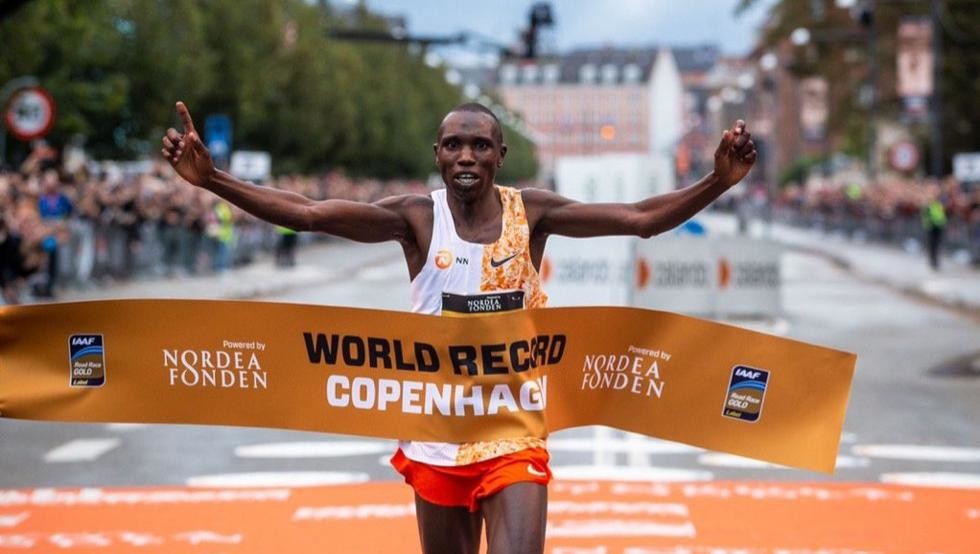
The 27-year-old Kamworor had to be operated on at St Luke's Hospital in Eldoret.
“I am not quite sure if I will run since I returned to training late owing to the accident,” said Kamworor, who resumed light training towards the end of July.
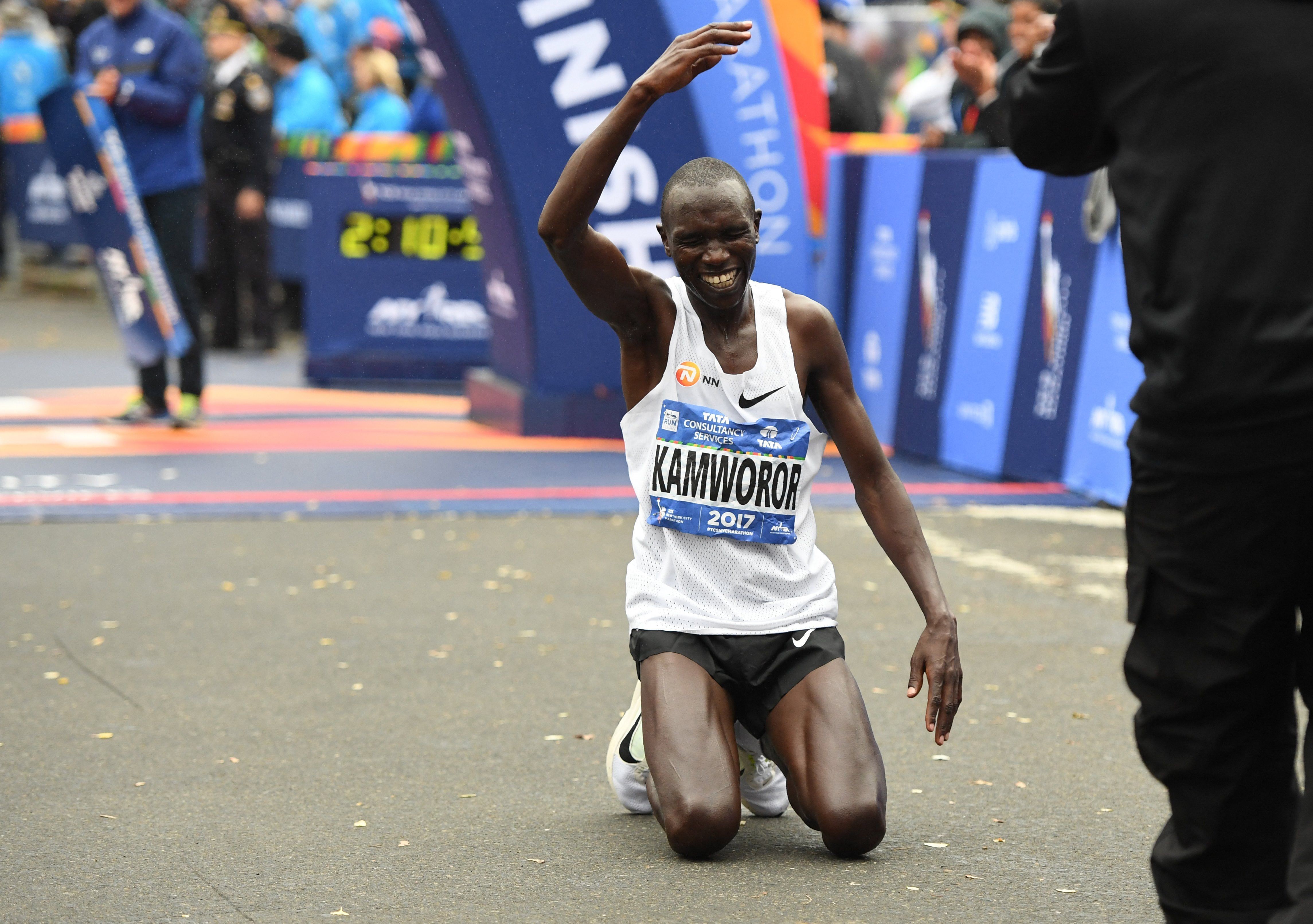
According to Dr Victor Bargoria, who treated Kamworor, the diagnosis was to open incomplete right tibia shaft fracture, knee bruises and scalp laceration.
“The procedure was debridement of contaminated soft tissue and loose bone fragments followed by irrigation and wound closure,” he explained after attending to the star at St Luke's Hospital.
The athlete who trains at the Global Communications camp in Kaptagat was targeting his fourth consecutive world half marathon title after 2014 Copenhagen, 2016 Cardiff and 2018 Valencia.
It’s in Copenhagen where Kamworor sealed his hat-trick with a championship record time of 59 minutes and 08 seconds, breaking Zersenay Tadese’s 2009 Birmingham’s winning time of 59:35.
Kamworor won the race in Valencia in 2018, beating Kenyan born Abraham Naibei Cheroben of Bahrain and Eritrean Aron Kifle to second and third places respectively.
Kamworor rolled out a world record when he claimed the Copenhagen Half Marathon in 58:01 in September last year, crushing the previous time of 58:23 set by Tadese in Lisbon in 2010. Another Kenyan Abraham Kiptum broke the record in 2018 Valencia but the time has been expunged for doping.
Kamworor would go on to seal his double at the New York City marathon in November last year after his 2017 exploits but his dream of a hat-trick this year has been curtailed after the event was cancelled due to Covid-19 pandemic.
Kamworor and World half marathon bronze medallist Pauline Kaveke were picked early March this year to lead Team Kenya for the 24th edition of the World Half Marathon that was planned for March 29 in Gdynia but postponed to October 17 due to Covid-19 pandemic.
Athletics Kenya will now have to rethink about the team selection after Kaveke and Victor Chumo, who is also in the team, were picked to pace at the London Marathon on October 4 this year.
The men’s team also had Kibiwott Kandie, who is fresh from winning the Prague Half Marathon in a course record and fourth fastest time in history over the distance of 58:38 on September 5.
Kandie, the national cross country champion, also won the Ras Al Khaimah (RAK) Half Marathon in February in the United Arab Emirates.
by Ayumba Ayodi
Login to leave a comment
World Half Marathon Championships
The Chinese city of Yangzhou will host the 2022 World Athletics Half Marathon Championships. China, one of the fastest-growing markets in road running, had 24 World Athletics Label road races in 2019, more than any other country. It hosted the World Half Marathon Championships in 2010 in Nanning and will stage the World Athletics Indoor Championships in Nanjing in 2021. ...
more...Geoffrey Kamworor's world half marathon record of 58:01 has been ratified
In a sensational run, Kamworor chopped 22 seconds from the previous record at the Copenhagen Half Marathon on 15 September, coming tantalizingly close to breaking the event's 58-minute barrier.
It was an apt setting for the 26-year-old Kenyan who won the first of his three successive world half marathon titles in the streets of the Danish capital in 2014.
Covering the first five kilometers in 13:53, just outside world record pace, Kamworor upped the tempo to reach 10 kilometers in 27:34, four seconds inside his stated target. He was in front alone by the 11-kilometer mark, but didn't slow. He reached 15 kilometers in 41:05, the fastest time ever recorded for that distance and a stunning 11 seconds inside sub-58 minute pace.
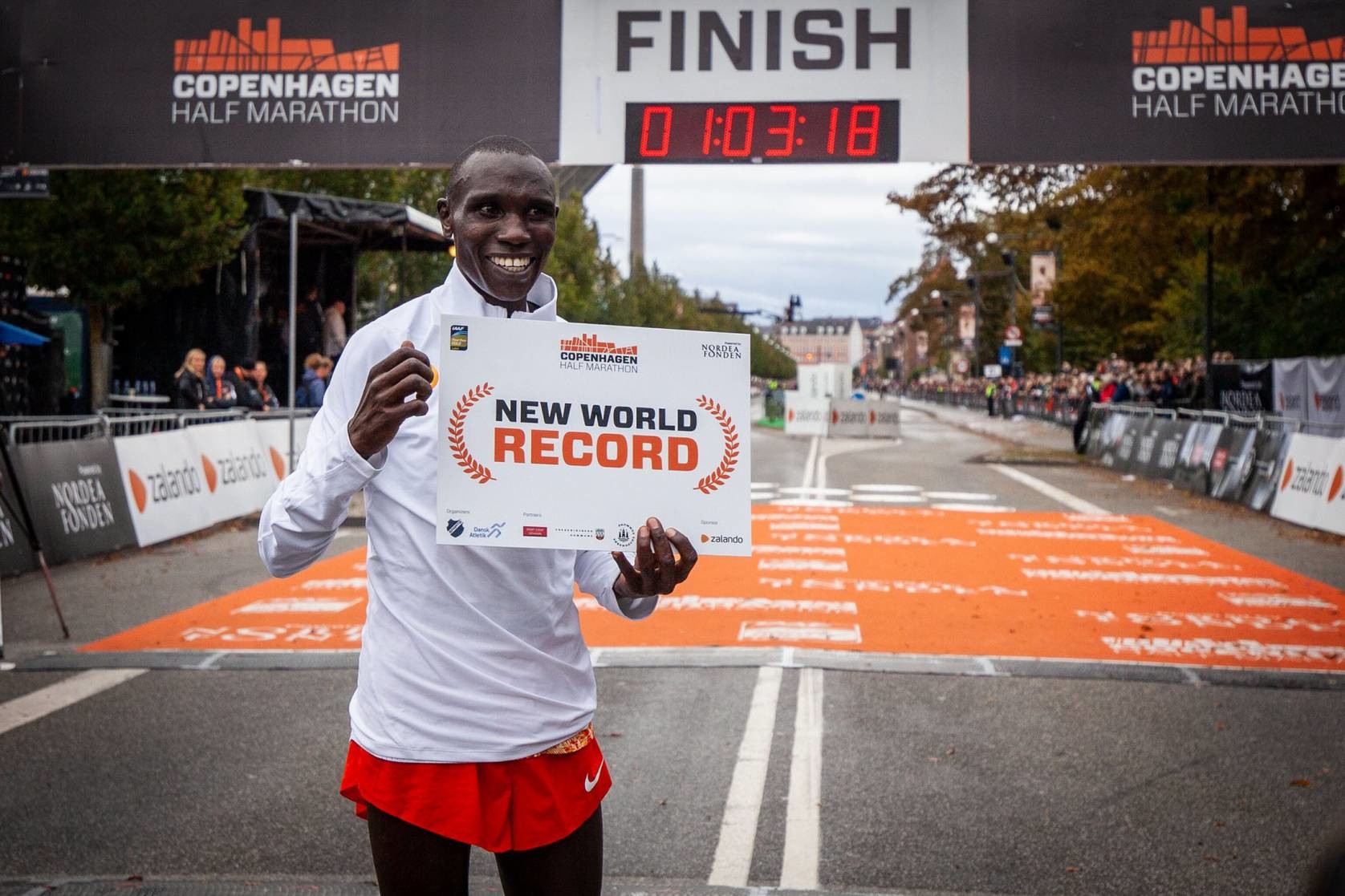
His pace dropped over the waning stages but he still reached 20 kilometers in 55:00, another world best. He was just a few meters from the finish line as the clock moved to 58 minutes before stopping at 58:01.
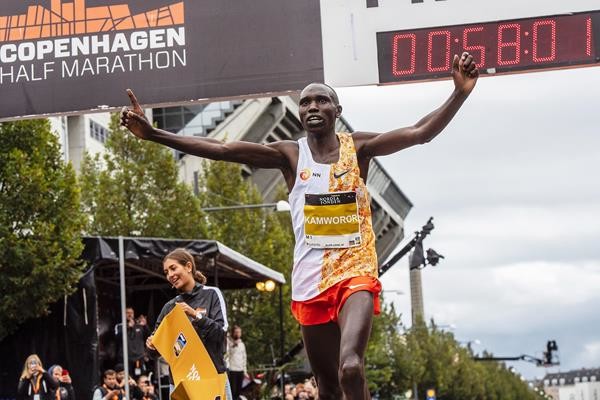
“It is very emotional for me to set this record,” said Kamworor, who also won back-to-back world cross country titles in 2015 and 2017. “And doing it in Copenhagen, where I won my first world title, adds something to it.”
The previous record of 58:23 was set by Zersenay Tadese in Lisbon in 2010.
by World Athletics
Login to leave a comment
Copenhagen Half Marathon
The Copenhagen Half Marathon was the first road race in Scandinavia and is one of the fastest half marathons in the world. The Copenhagen Half Marathon has been awarded with the International Association of Athletics Federation's (IAAF) most distinguished recognition - the IAAF Road Race Gold Label. Copenhagen Half Marathon was awarded the IAAF Road Race Bronze Label in January...
more...Kenya's former world half-marathon record holder Abraham Kiptum has been banned for four years over an anti-doping violation
The Athletics Integrity Unit, which oversees integrity issues in international athletics, including doping, had provisionally suspended the 30-year-old on April 26 for an Athlete Biological Passport (ABP) violation.
The passport uses blood tests to detect the likelihood of doping rather than testing for specific substances.
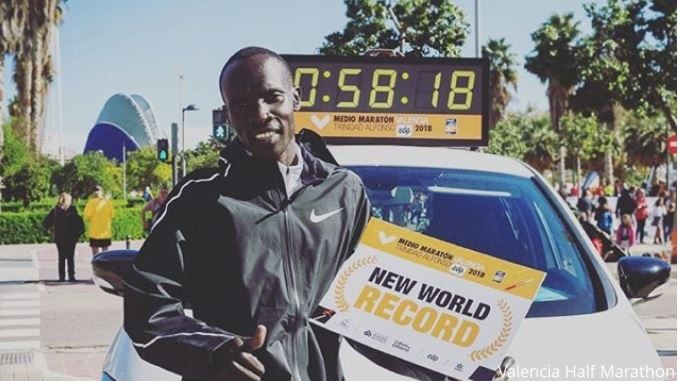
Kiptum's four-year ban commences from that date and all his results going back to Oct. 13, 2018 — including a half marathon world record (58 minutes and 18 seconds) that he had set in Valencia later that month — have been disqualified.
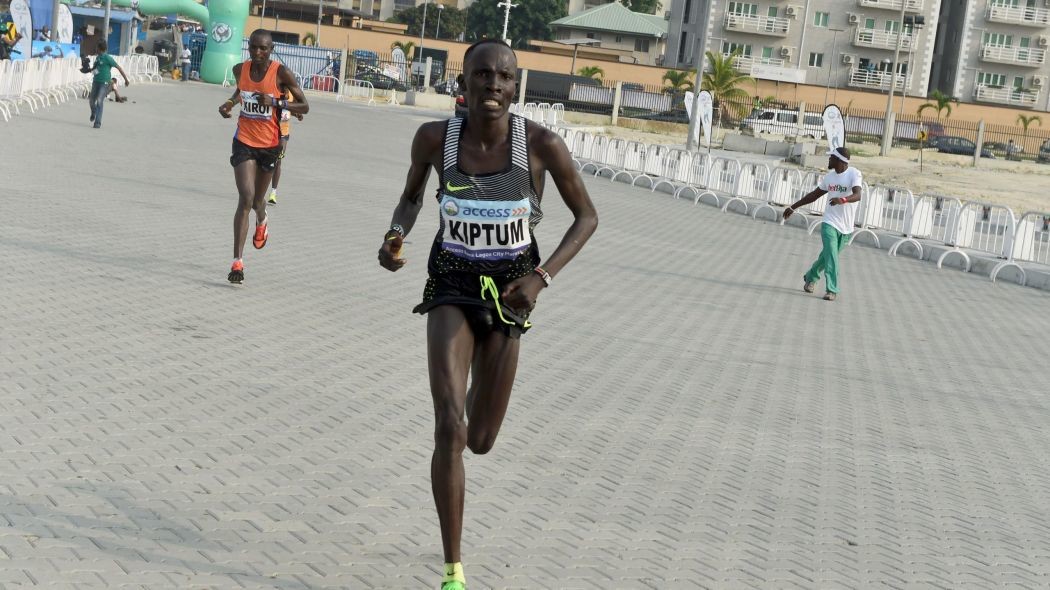
His time was five seconds better than the previous mark set by Eritrea's Zersenay Tadese in Lisbon in 2010.
Kiptum's compatriot Geoffrey Kamworor broke the world half-marathon record by 17 seconds in Copenhagen in September.
Kenya is known for its middle and long-distance running pedigree but has suffered damage to its reputation due to a number of doping violations in recent years.
Login to leave a comment
Lelisa Desisa wins the marathon at the IAAF World Athletic Championships in Doha
Lelisa Desisa added a world marathon gold to the silver he won in Moscow six years ago as he and teammate Mosinet Geremew headed an Ethiopian one-two on the Corniche in conditions that were significantly more forgiving than those that had seen a slew of women marathoners pulling out on the opening day of the championships.
Desisa clocked a season’s best of 2:10:40, with Geremew four seconds back. Bronze went to Kenya’s Amos Kipruto, who finished in 2:10:51, with Britain’s Callum Hawkins clocking 2:10:57 to repeat his fourth placing from the 2017 World Championships marathon in London.
With the temperature at about 29C (84F), and humidity at about 48%, the two Ethiopians were part of a group that caught up with early breakaway leader Derlys Ayala of Paraguay just before halfway point and maintained enough energy to push on to glory in the final kilometre.
They left in their wake Kenya’s Kipruto, who had also been a part of the long-time leading group, and Hawkins, whose massive mid-race effort brought him into the lead group of three with only a couple of kilometres to go.
The effort to get there, however, cost the Briton dearly, and he had to accept his second successive fourth place in this event following the London running two years ago.
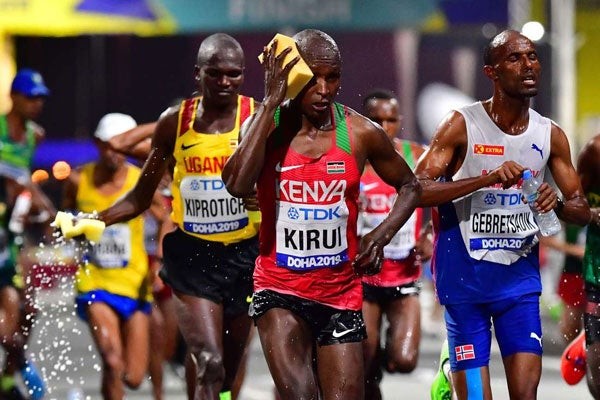
In the interim, Hawkins hit the headlines when he collapsed in the heat of the Gold Coast when he was only a mile or so away from what looked like a runaway win at the Commonwealth Games.
On this occasion he maintained his effort to the line, although that seemed little consolation to him in the immediate aftermath.
So Desisa went one better than he had in 2013, although the action that earned him most renown that year was his gesture in donating his Boston Marathon winning medal back to the city in sympathy with the bombing that took place near the finish line nearly three hours after he had passed it.
"It was hot, but I prepared perfectly for this race," said Desisa, who won the New York City Marathon last year. "I am very tired. But after I took silver in Moscow, this time I kept my power better.”
Zersenay Tadese, Eritrea’s five-time world half-marathon champion, led the lead group for much of the second half of the race before dropping to sixth place in 2:11:29.
One place above him, in 2:11:09, was South Africa’s Stephen Mokoka, who had also taken the responsibility for the lead for long periods.
Ayala, who had run a personal best of 2:10:27 only two weeks earlier in Buenos Aires, dropped out very soon after the halfway mark – one of 18 who failed to finish from the field of 73.
Login to leave a comment
IAAF World Athletics Championships Doha
The seventeenth edition of the IAAF World Championships is scheduled to be held between 27 September and 6 October 2019 in Doha, Qatar at the renovated multi-purpose Khalifa International Stadium. Doha overcame bids from Eugene, USA, and Barcelona, Spain to be granted the rights to host the 2019 IAAF World Championships in Athletics. Having hosted the IAAF Diamond League, formerly...
more...Augustine Choge, Victor Chumo and Bernard Lagat have been selected to pace for Eliud Kipchoge in his mission to run the first sub two hour marathon
Three seasoned road runners, Augustine Choge, Victor Chumo from Kenya and double world champion Bernard Lagat of the United States have been selected to pace for Eliud Kipchoge in his mission to run the marathon in less than two hours in Vienna in October.
Choge and Chumo are part of the team training with Kipchoge in Kenya for the race, which is set for October 12-20 window in Vienna, Austria. A specific date will be made known days to the race after the accurate weather forecast has been confirmed.
Kipchoge says to break the two-hour mark in marathon is about setting history and challenging his body to the limit.
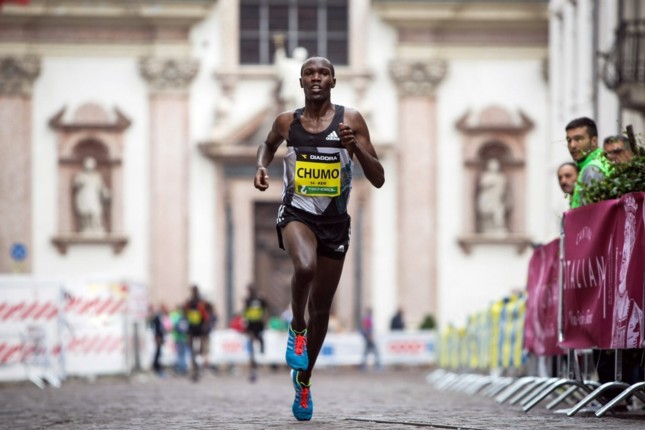
"It's like stepping on the moon, going up the tallest mountain and even going to the middle of the ocean," Kipchoge said on Saturday.
Whereas the focus will be on the Olympic and London Marathon champion to improve on his last mark of two hours and 25 seconds, the three pace setters will carry the burden to lead the Berlin champion through his steps and see to it that he delivers the results for the INEOS 1:59 Challenge.
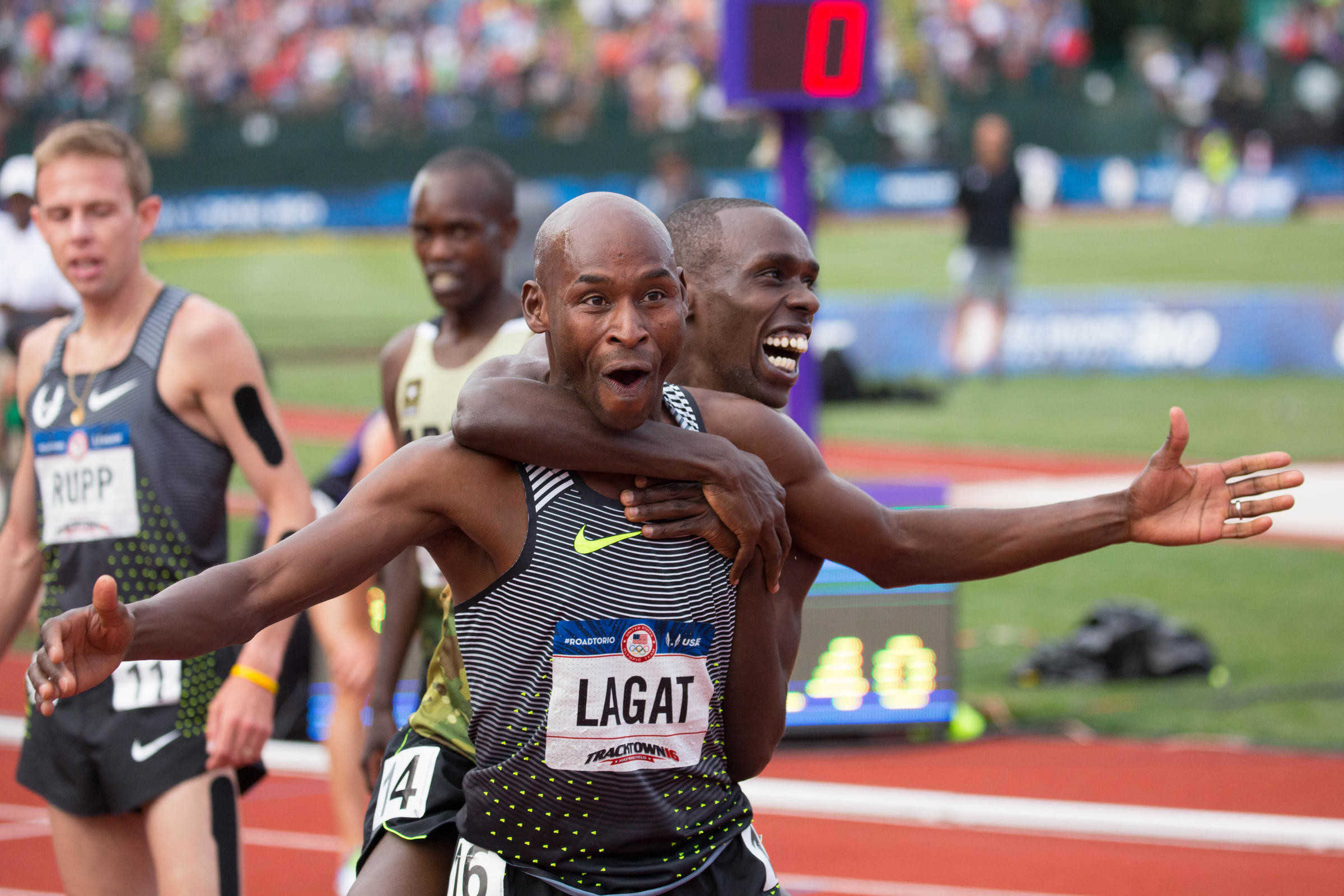
In Monza, Italy in 2017, Lagat was one of the pace setters together with Ethiopia's Lelisa Desisa and Eritrea's Zersenay Tadese, both of whom fell by the wayside, leaving the Olympic champion to run over half of the race alone.
But now the organizers have announced the trio together with Norway's Henrik, Filip and Jakob Ingebrigtsen plus Australian pair Jack Rayner and Brett Robinson.
Further pacemakers will be announced in the coming weeks.
Login to leave a comment
INEOS 1:59 Challenge
Mankind have constantly sought to reach new frontiers and to achieve the impossible. From Edmund Hillary reaching the summit of Mount Everest to Roger Bannister’s four-minute mile to Felix Baumgartner jumping from space we have frequently redefined the limits of human achievement and broken new barriers previously seen as simply impossible. After the four-minute mile and the ten second 100m...
more...Both the men and women course records were smashed at the 35th Annual Zurich Marathon in Sevilla
Ethiopians Ayana Tsedat and Guteni Shone grabbed convincing victories at the 35th Zurich Maratón de Sevilla, an IAAF Gold Label road race, on Sunday February 17.
Running in nearly ideal weather conditions, the 22-year-old Tsedat clocked 2:06:36 to improve the race record by 1:07. Likewise Shone’s winning time of 2:24:29 broke the course record by a similar difference, 1:06.
Both men’s and women’s contests had strong depth as five men ducked under 2:07 while four women ran inside 2:27 as the new circuit proved to be even faster than the previous one.
The men’s race opened at a steady pace of 3:00m per kilometer. A group of 13 runners hit the 10km point in 29:56 with Kenya’s Daniel Kipkore Kibet plus the Ethiopian group of Tsedat, Belay Asefa and Birhanu Berga.
The Madrid-based Tsegay went through the halfway point in 1:03:18 with ten men still running at his shoulder. By the 27k it was Kibet who moved to the front to maintain the rhythm, sharing the lead with Tsegay by 30 kilometers, reached in 1:30:09. Surprisingly, the Eritrean, a 2:09:56 performer, didn’t quit the race at that point and ran on with relative ease.
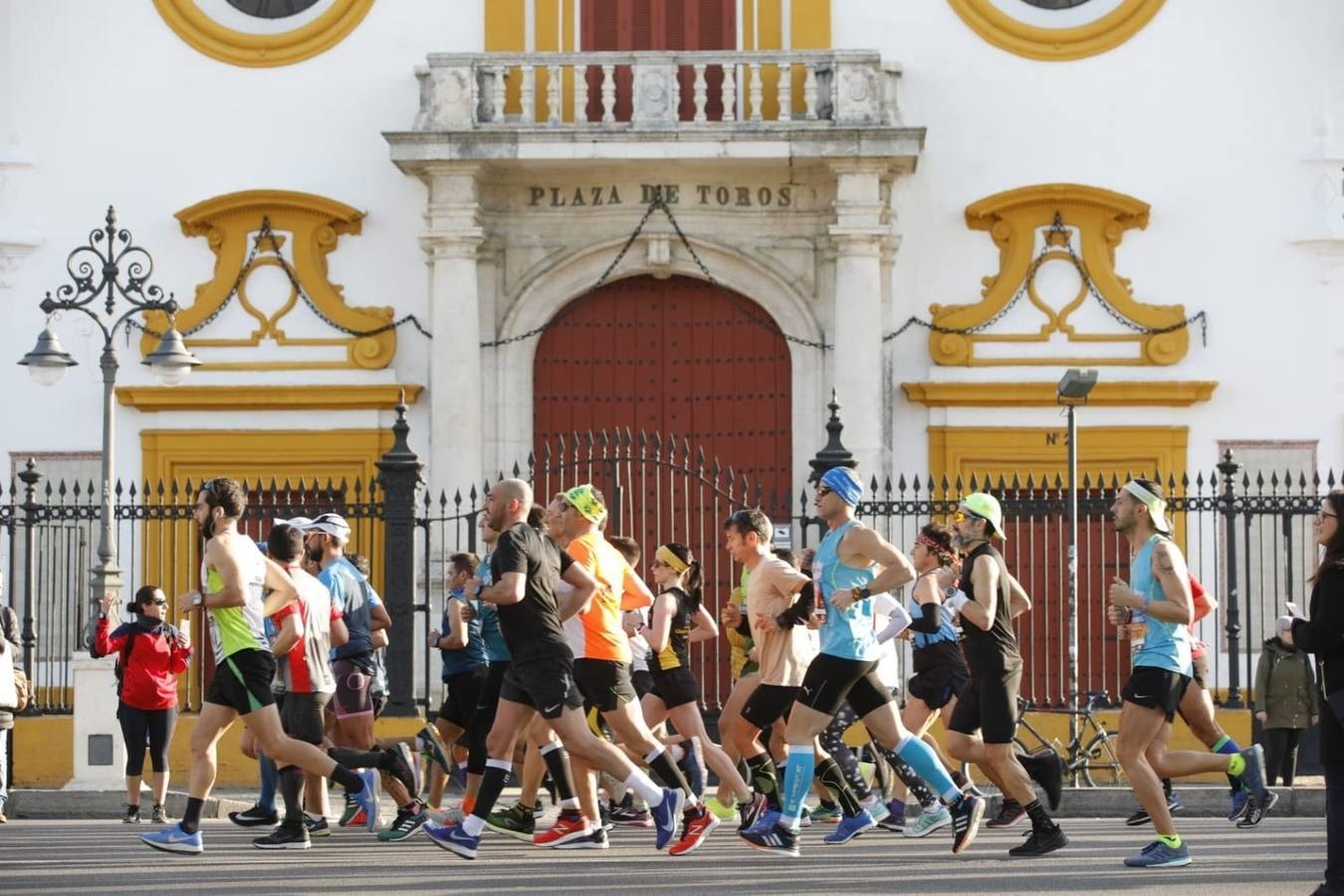
By then the main group included Tsegay, Kibet and the Ethiopian trio of Tsedat, Asefa and Berga, with the race record of 2:07:43 seemingly well within reach. In the closing kilometer Tsedat launched his attack. First Kibet and then Tadese fell back while Asefa and Berga followed behind in single file, but unable to maintain the pace. Tsedat cross the line in 2:06:36 to obliterate his previous lifetime best of 2.09:26 set last year in Barcelona while Asefa (2:06:39) and Berga (2:06:41) secured an Ethiopian podium sweep, also improving their career bests.
Meanwhile Tsegay, the designated pacemaker, crossed the line in 2:06:46 to break the Eritrean national record and obliterate his previous best. Tsegay trains in Madrid under the guidance of Jerónimo Bravo, the coach who led Zersenay Tadese to the world half marathon record of 58:23 back in 2010.
In the women's race, it was Spanish marathon Roger Roca who was given pacing duties on track to break the 2:25:35 record set last year. He set a steady 3:26 per kilometer pace to go through the opening 10,000m in 34:25 with ten women following closely. The halfway point was reached in 1:12:40 by a group of eight Ethiopians.
The leading quintet passed 30k in 1:43:17, still led by Roca and well on schedule to set a new race record. Shone and Gebremeskel proved to be the strongest as they comfortably led by the 35k point, still on track for a sub-2:25 performance.
Then Shone, one of Tirunesh Dibaba’s training partners, made her move, reaching the 40km point in 2:17:03 with a 12 second advantage over Gebremeskel. The 27-year-old injected an even faster pace over the closing kilometers to romp home in 2:24:29, less than one minute outside of her PB set four years ago. Gebremeskel clocked 2:24:53, improved her previous best by more than five minutes.
by from IAAF
Login to leave a comment
Zurich Marathon Sevilla
This urban, flat, fast and beautiful brand new race course will drive athletes through the most beautiful monuments of the city. Zurich Maraton de Sevilla brings the unique opportunity to brake the Best personal result over the mythical distance to all the athletes, professional or age groupers, in one of the most perfect international marathon circuits. This fast marathon takes...
more...The new Half Marathon World Record holder Abraham Kiptum has shelved plans to compete at the Xiamen International Marathon in China
Login to leave a comment
Meet the new Half Marathon World Record Holder Abraham Kiptum, My Best Runs Profile
by Willie Korir reporting from Kenya
Login to leave a comment
I can’t believe it. I am over the moon says Abraham Kiptum after clocking 58:18 a new world record
Login to leave a comment
Galen Rupp will battle strong international field at Chicago Marathon
Login to leave a comment
Wilson kipsang, Eliud Kipchoge and Zersenay Tadese will face off at BMW Berlin Marathon
Login to leave a comment
Eliud Kipchoge seeking again to challenge the world record at Berlin Marathon
Login to leave a comment
Eritrea´s Tadese chasing fourth Lisbon Half Marathon victory
Login to leave a comment
Half Marathon World Record Holder is Racing Sunday
Login to leave a comment
Kiplagat and Tadese lead Marugame Half Marathon
Login to leave a comment


